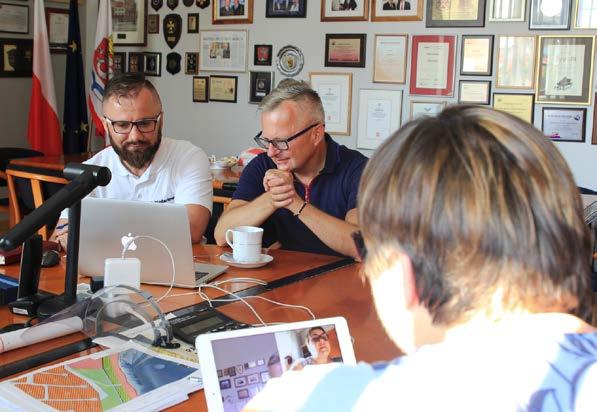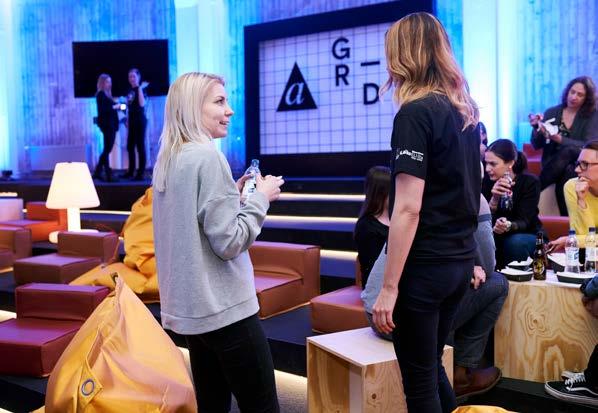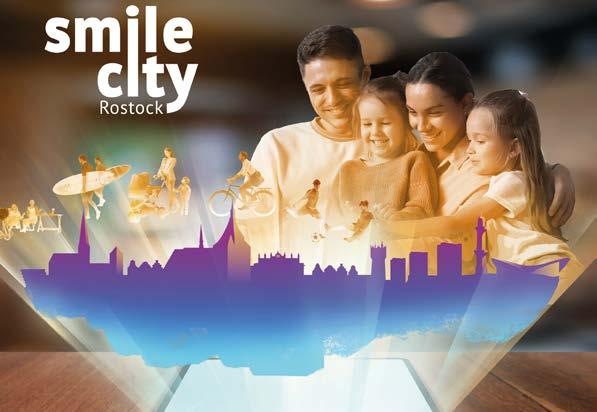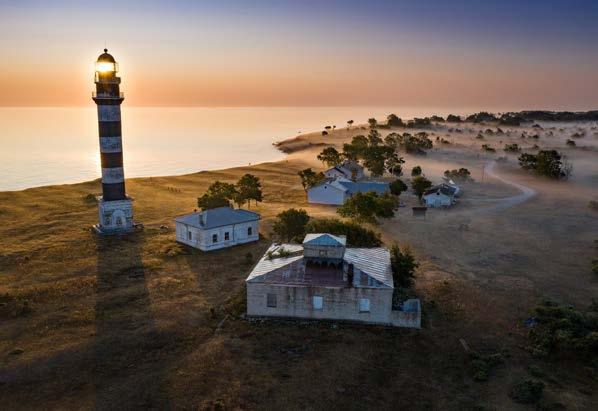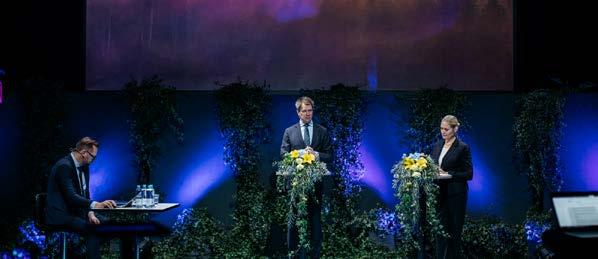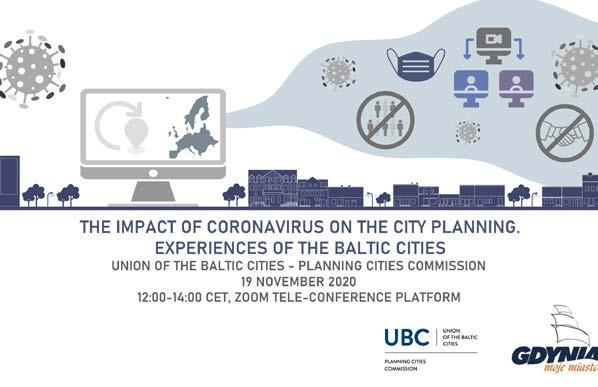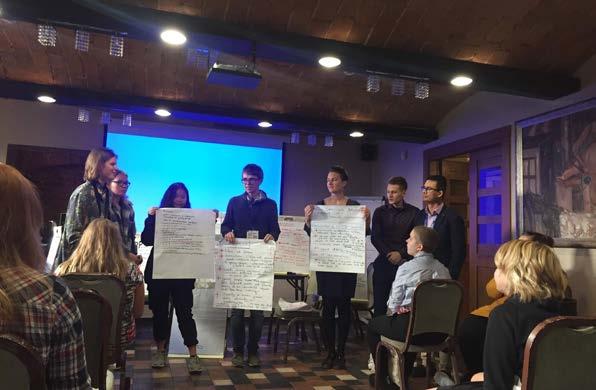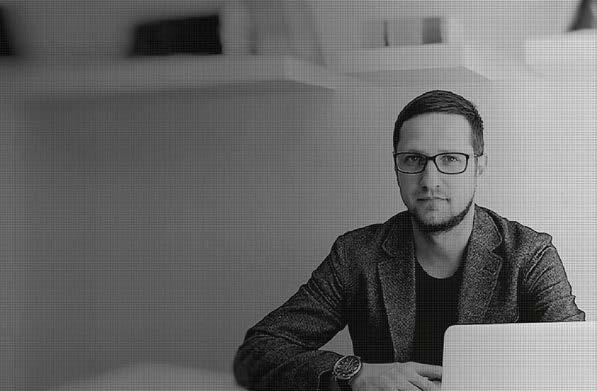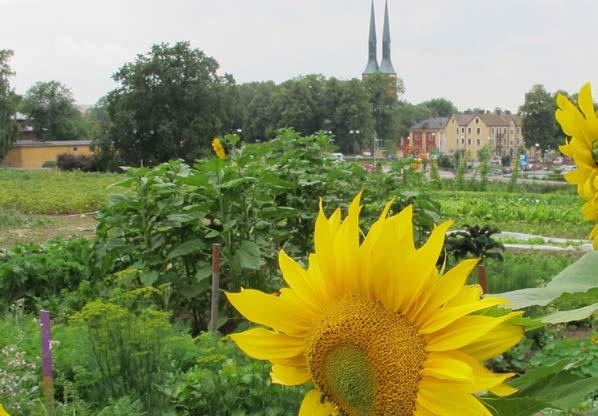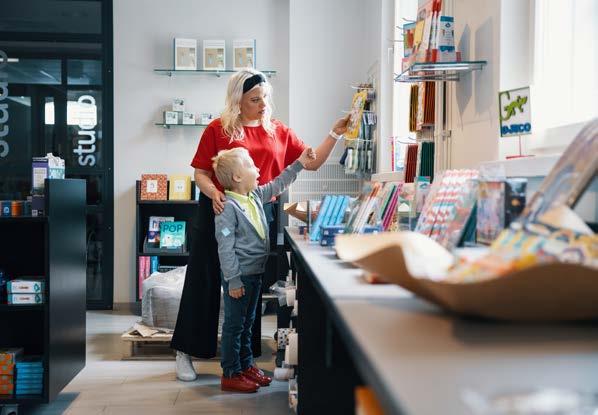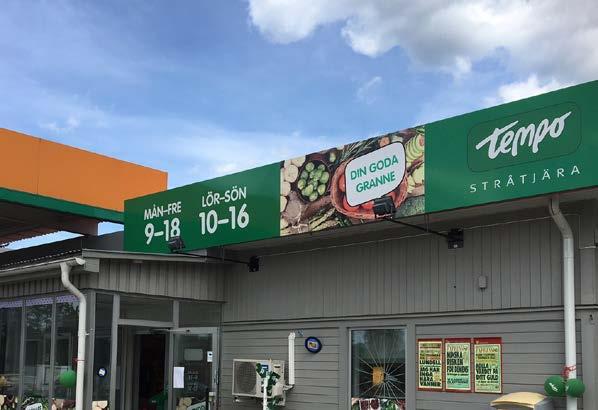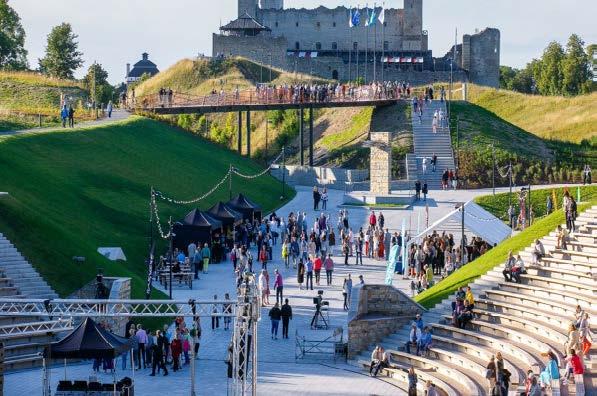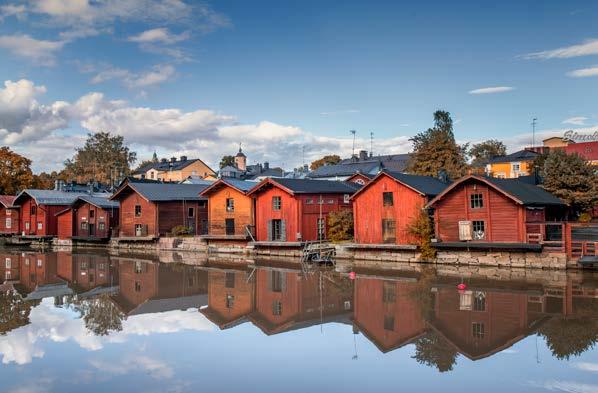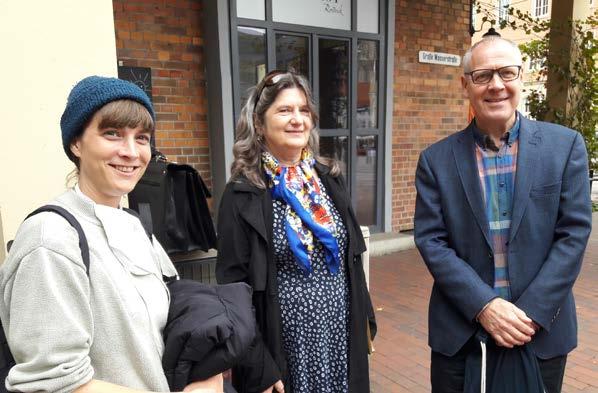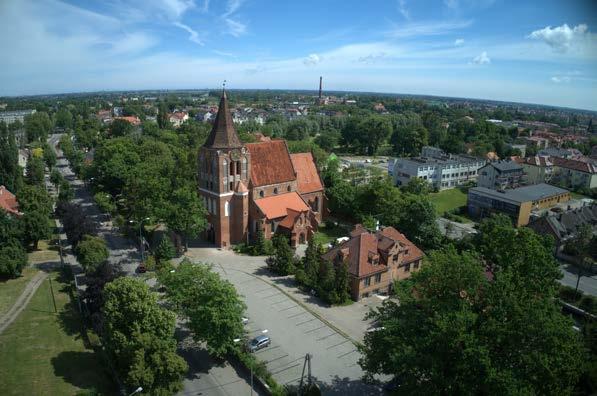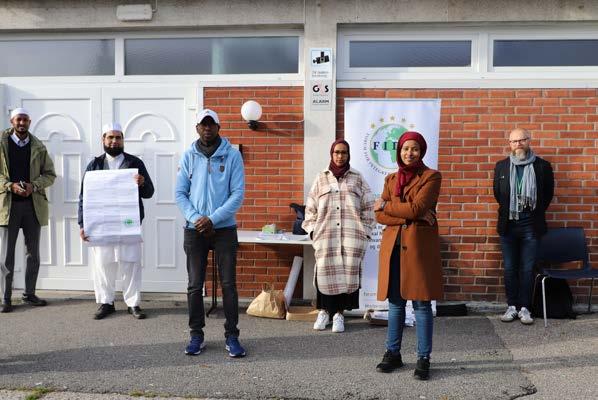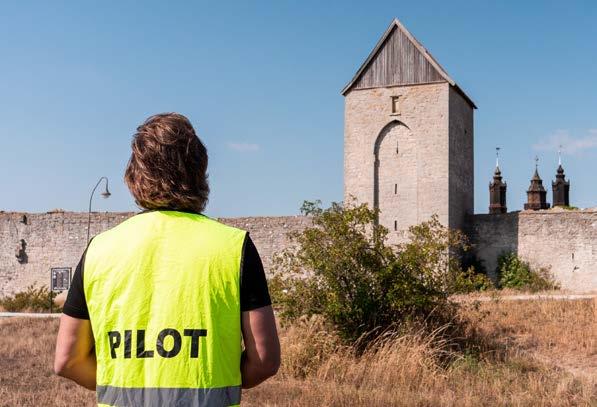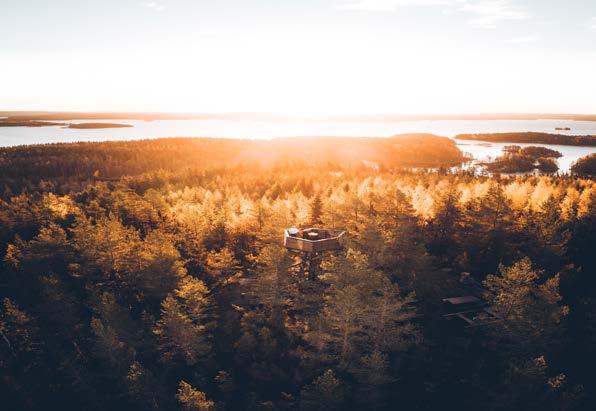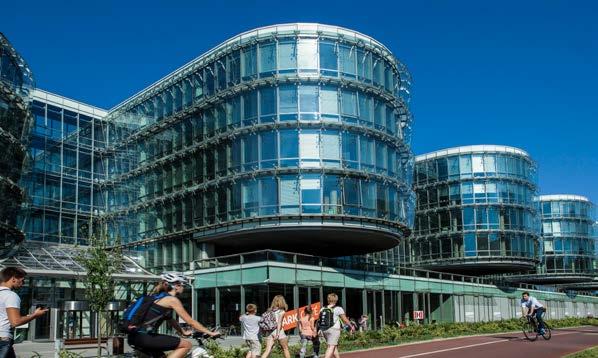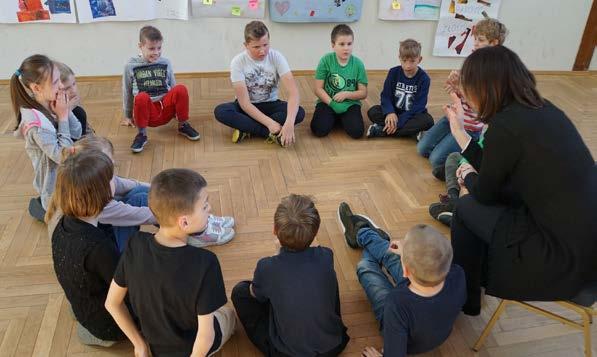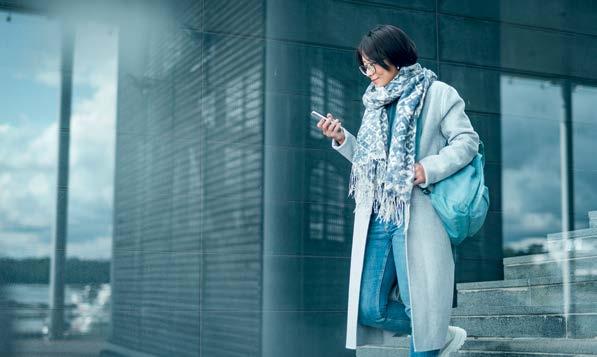AUTUMN 2020
BALTIC
CITIES
BULLETIN PUBLISHED BY THE UNION OF THE BALTIC CITIES
SMART DEVELOPMENT AARHUS • ARENDAL • BERGEN • BERGEN AUF RÜGEN • CĒSIS • DARŁOWO • ELBLĄG • ELVA • ESPOO • GARGŽDAI • GÄVLE • GDAŃSK • GDYNIA • GOTLAND GREIFSWALD • GULDBORGSUND • HELSINKI • JĒKABPILS • JELGAVA • JONAVA • JŪRMALA • JYVÄSKYLÄ • KALMAR • KARLSKRONA • KAUNAS • KEMI KIEL • KLAIPĖDA • KOLDING • KOSZALIN • KOTKA • KRISTIANSAND • LAHTI • LIEPĀJA • LINKÖPING • LULEÅ • PORI • PORVOO • PRUSZCZ GD. RAKVERE • MAARDU • MALMÖ • MARIEHAMN • MIELNO • NÆSTVED • ÖREBRO • PALANGA • PANEVĖŽYS • PÄRNU • REDA • RIGA • ROSTOCK • SŁUPSK SÖDERHAMN • SOPOT • ST. PETERSBURG • TALLINN • TARTU • TAURAGĖ • TRELLEBORG • TUKUMS • TURKU • UMEÅ • USTKA • VAASA • VÄSTERVIK • VÄXJÖ
1
BALTIC CITIES BULLETIN Dear UBC Friends and Colleagues, Now over half a year into the pandemic, we can all say that the challenges it brings are not yet tackled. During this time, the UBC network has continued its work in exchanging good practices, building capacities and looking for technological solutions to turn the crisis into opportunities as much as possible. This issue of the Bulletin called “Smart Development” is exactly about that: how to turn obstacles into chances for something new and, also, how to develop our societies further, despite the current global situation. We cannot wait for the crisis to pass – instead we should continue with all our important work, e.g. climate work and sustainability, youth inclusion, cultural cooperation, cities development. The consequences caused by Covid-19 to our economies and daily lives continue to challenge our societies to become even more proactive, more unified, more resilient. This is why the draft theme of the next UBC General Conference is “Resilient Baltic Sea Cities. Tackling the challenges and creating the future(s).” This General Conference, to be held in St. Petersburg in October 2021, will be special in many ways. We hope to meet there together for the first time after this long period of isolation, since we also have a very good reason to come together: In September 2021, UBC turns 30 years. These thirty years of active international networking is a very honorable achievement from the whole UBC community! The festive activities will start in early 2021 and culminate in the special General Conference in October. A publication about UBC’s history is also in the making, and we encourage all our UBC friends to contribute! Especially the early years in 1990s were very important from the general political and economic point of view of the Baltic Sea Region development. We intend to collect and document these special years now, when most of the pioneers are still available. Simultaneously, we will continue looking into the future. UBC is not an IT application – it is a dynamic platform made 30 years ago, that will work on the better future of citizens and leaders in the cities. This year has brought with it not only the global pandemic but also changes within the UBC structure and organisation. During 2021, we strive to make these changes a concrete reality, so that we can even better serve the needs of our member cities. The cities are smart, but they become even smarter within UBC cooperation. Stay safe! Warm greetings,
Mantas Jurgutis President of UBC EDITOR IN CHIEF: Paweł Żaboklicki • EDITING & LAYOUT: Irene Pendolin EDITORIAL BOARD: Anna Dargiewicz, Ewa Kurjata, Irene Pendolin, Karin Wohlgemuth, Paweł Żaboklicki PHOTO: Adobe Stock PUBLISHER: Union of the Baltic Cities, Secretariat, Wały Jagiellońskie 1, PL-80853 Gdańsk POLAND tel. +48 58 3010917 • tel. +48 58 3019123 • e-mail: info@ubc.net • www.ubc.net
6 I. SMART DEVELOPMENT Smart development in challenging times Service network supporting companies Entrepreneurial people in pandemic How to change the world with the help of a game? Covid-19 has not destroyed the summer season in Poland Digital community building on Gotland Supportive and smart city Jelgava Tourism destination with sustainable soul Green mobility and social sustainability Kaunas supports hotel business Kiel supports local companies Reaping the benefits of good relations Panevėžys did not give up Towards recovery through sustainable tourism “Interconnect” successfully finalized Gdańsk joins the intelligent cities challenge Pruszcz Gdański: we are not holding our breath Opportunity from the virus Solutions to make rural shops survive Car-free avenue: economy and entertainment “Almost abroad” – Vaasa Strengthening the ecosystems
4–5 6 7 8–9 10 11 12 13 14–15 16 17 18 19 20 21 22–23 24 25 26 27 28 29
II. UBC NEWS & FACES Welcome to UBC National Workshops about the EUSBSR Interview with Marko Paunovic – UBC Brussels Antenna STEAM – Task Force turns digital Rethinking the Youthful Cities Commission UBC Planning Cities Commission goes online Youth shared their safety feeling Preparing the UBC Sustainability Action Programme 11th EUSBSR Annual Forum: Better together Smart and Prospering Cities Commission organised webinars UBC Executive Board held its second online meeting
‘We and our traditional costumes’ Tourism needs help, and Gdynia knows it Innovative methods of children’s education Rostock wins “SMART CITIES made in Germany” International residents and city experts co-create solutions Turku wins the European Covenant of Mayors Award 2020 International cooperation of cities in the pandemic era
11
DIGITAL COMMUNITY BUILDING ON GOTLAND
13
TOURISM DESTINATION WITH SUSTAINABLE SOUL
29
STRENGHTENING THE ECOSYSTEMS
30
WELCOME TO UBC NATIONAL WORSKHOPS ABOUT THE EUSBSR
30 31 32 33 34 35 36 37 38 39
III. CITY NEWS 40 41 42 43 44 45 46
SERVICE NETWORK SUPPORTING COMPANIES
32
STEAM – TASK FORCE TURNS DIGITAL
42
INNOVATIVE METHODS OF CHILDRENS EDUCATION
3
SMART DEVELOPMENT IN CHALLENGING TIMES by Wolfgang Schmidt, International Affairs, City of Kiel Chairman of the UBC Smart and Prospering Cities Commission wolfgang.schmidt@kiel.de
The corona pandemic has made the central challenges for cities, regions and countries visible like in a burning glass. The modern city is globally connected and internationally dependent. In a complex and uncertain world cities have more than ever the responsibility to ensure the protection of people, to offer regional identity and enable the societal and economic transformation to a knowledge driven society. The future-proof city is resilient, internationally connected and transformative. These conditions demand a lot from us. City management and employees have to deal with new situations every day and react quickly and flexible. At the same time, citizens, business and academic institutions expect not only transparent communication but also opportunities to actively participate. A steep learning curve is more essential than ever.
3. Which main learnings does your city take from the crisis referring to your business/ economic development strategies? Can the crisis be seen as an impulse for further city development? 4. Which role does sustainability play for these processes? 5. How can international cooperation contribute to building resilient local economies? The reports from our cities are of central importance because learning from others is a promising answer to the great challenges of our time. The prerequisite is cooperation between cities in our region. As a reliable and proactive network, UBC is more important and up-to-date than ever before. Towards a resilient local economy The general conditions for cities have changed dramatically in the past few years. The current crisis is part of this ongoing transformation, which is characterized by increasing instability and rapid change
We from the Smart and Prospering Cities Commission would like to hear more about resiliency strategies for your local economy and learn from best practices as the activities of our cities is A of utmost importance for our businesses. steep Also we are interested in getting an impression of new initiatives and inventions learning the pandemic has brought and the impact curve is more they have i.e. on the sustainable development of your cities. No one knows the best way out of the crisis yet – but one’s for sure: We will be better together. You as the responsible persons in the UBC member cities have given excellent examples of how to deal with the current situation.
essential than ever.
These questions were the focus of this issue of the Baltic Sea Bulletin: 1. How was your local economy affected by Covid-19? 2. What measures or projects has your city developed to help your local economy through the crisis? Which measures have proven the most successful ones?
4
I expect the following challenges in the years to come: 1. not localized crises (health, environment, migration), 2. national populism, 3. rapid transfer to the knowledge economy.
Due to its global dependency, regional and national crises have a direct impact on distant countries and cities. The world is becoming more confusing and more complex in its effects due to globalization and digitization in conjunction with the shift in political and economic power relations. Populist and nationalist forces are increasingly using this uncertainty to achieve their own goals.
The highly developed economies of the Baltic Sea Region are characterized by a shift from industrial processes to the knowledge economy. This changes branches and occupational fields as well as social cohesion and future opportunities for young people.
Role of the cities The mechanisms and consequences of increasing globalization for the city and region should be regularly and carefully evaluated and described. The importance of international organizations and networks and their targeted use cannot be overestimated.
Our cities have the central task of moderating these developments and elaborating visions for future societies. Real life takes place in cities and not in regional or national Globalization, the worldwide exchange of goods and serbureaucracies. That is why cities will have increased vices and increasing mobility of people can lead to importance in the future. Future-proof cities fears about the loss of identity. It should be the develop visions and goals in participatory task of urban politics to take these concerns processes and moderate their pragmatic seriously and to find the right answers. Learn implementation in urban society. from others, The change in the economy towards Agility is the key a knowledge-driven economy places find common special demands on education, solutions, clarify The challenges described can be economic development and urban seen as an opportunity or a disaster. development. If used intelligently, and enforce the I recommend focusing on the opporthese economic changes can beconew role of the city tunities. me a decisive driver of social innovation. vis-à -vis national The majority of the cities in the Baland european tic Sea region have the great advanLearn from others, find common sotage that they are pioneers in Europe lutions, clarify and enforce the new institutions. for participation, innovation and digitizarole of the city vis-à -vis national and eution and that they have a long tradition of ropean institutions. In summary, that is cross-border cooperation. the mission that UBC, as northern europe’s largest city network, has been fulfilling very sucAgile local crisis management is required for the future. cessfully for many years. This includes, in particular, flexible administration, transparent communication and the moderation of active particiThe UBC Smart and Prospering Cities Commission does its pation by civil society. part and is always open to ideas and initiatives on how we can become even better and more beneficial.
5
SERVICE NETWORK SUPPORTING COMPANIES by Jasmin Repo | jasmin.repo@espoo.fi
Photo: Lisbeth Iversen
Espoo’s local economy has been hit hard by the Covid-19 pandemic. Many companies, particularly small businesses, are struggling in the crisis. Even though Finns rediscovered homeland travel during the summer of 2020, the metropolitan area Finland did not receive nearly as many tourists as it had lost due to the global pandemic and international travel restrictions. Most recently, severe restrictions are also threatening the survival of many restaurants and bars. Espoo is actively looking for solutions to the economic effects of the pandemic with national level authorities, partners and stakeholders. In spring, with the help of funding from the Finnish government, the city opened an application process for operating support for sole entrepreneurs, a one-off payment of EUR 2,000, intended to cover the costs that arise from business operations during the coronavirus situation. Over EUR 4,000,000 have been distributed to nearly 3000 sole entrepreneurs. New services developed The Business Espoo business service network of 7 organisations offers information and services for entrepreneurs and companies during the coronavirus pandemic. This support includes, for example, information on financing opportunities and digital services available for companies through the network. The global crisis has also sparked further development. Business Espoo’s reputation has been built during the pandemic, as the exceptional situation has required not only rapid communications but also the development of new services. The close cooperation of the network has contributed to the smooth management of tasks by remote connections, and the operators within the network have created new services and service channels, such as sole entrepreneurs’ operating-support application, processing and payment process; 6
ChatBot Bertta, which serves 24/7 in Finnish and English; and the BE-Studio webinar series for the different service needs of companies. In the running for European Enterprise Promotion Awards 2020 Cooperation of different organisations all serving the same customer – the entrepreneur or company needing support – has played a significant role during the crisis. If the Business Espoo network had not existed before the pandemic, it would not have been able to react to the crisis with the same speed and quality and to provide customers with related services and the necessary information. The success of Business Espoo has not been left unnoticed either. The BE service network has made it to the final of the European Enterprise Promotion Awards 2020 in the ‘Improving the business environment’ category.
ENTREPRENEURIAL PEOPLE IN PANDEMIC by Grażyna Pilarczyk | g.pilarczyk@gdynia.pl
Gdynia inhabitants are known to be entrepreneurial and able to cope with temporary difficulties. Even now, with the pandemic still ongoing, more companies are established than closed. Economic statistics give grounds for cautious optimism.
tant. We have also launched free professional consulting services on a large scale. We helped not only to navigate through complicated government aid applications, but also in a wide scope of law, taxes, finances and development of business’, says Katarzyna Gruszecka-Spychala.
According to statistics, inhabitants of Gdynia are eager to set up companies. We can observe an upward trend: more companies are being entered in the register than removed. The specificity of Gdynia market is the prevalence of small, local companies, employing up to 9 people (97 % of all entities).
Different sectors working together to defeat the crisis
‘At the end of September 2020, there were over 42,000 companies in Gdynia. More than 1,100 new companies have been opened, while less than 500 have been closed since April. This upward trend has continued for many years’. Another positive phenomenon is the fact that Gdynia has not experienced a dramatic wave of unemployment. In July 2020 the unemployment rate in Gdynia amounted to 3.1 % and was nearly 50 % lower than in Poland (6.1 %) or in the Pomeranian Voivodeship (5.5 %)’, says Deputy Mayor for economy Katarzyna Gruszecka-Spychała.
The Economic and Social Council for Adaptation to Life after Pandemic, composed of scientists, businessmen and third sector representatives, also operates in Gdynia. Together with authorities, the Council analyses economic situation and implements measures to limit the crisis. It has, among others, conducted a survey on how the pandemic affected the business. The results helped to prepare optimum forms of support, but also to diagnose companies’ situation. The results of independent rankings also prove that Gdynia is doing well despite difficult time. In this year’s Emerging Europe ranking Gdynia took fifth place in the “Quality of life” category.
Shelters for business Already on March 18, Gdynia announced help for entrepreneurs, consisting mainly of deferral or partial cancellation of local payments. Immediately after, different support programmes called “Gdynia storm shelters” were launched. The first one, “Storm shelter for Business”, provided support schemes for entrepreneurs. 265 entrepreneurs benefited from various kinds of exemptions and deferrals of payments proposed under the programme (as of the end of August 2020). ‘Many of them considered closing the business and dismissing employees already in the first days of the lockdown. That is why helping this group of inhabitants was so impor7
HOW TO CHANGE THE WITH THE HELP OF A GAME? by Marta Czarnecka-Gallas | m.czarnecka-gallas@pomorskieregion.eu
Walowy Square in Gdansk. Once a recreational area surrounded by impressive lindens and a representative fountain in its centre, a nice spot for a Sunday stroll. Today, no trace is left from the years of glory. The square does not encourage walks, neighbour chat or having a coffee with friends. There is, however, an interesting neighbourhood. It is close to the historic Lowland Gate, the Gothic towers and bastions of St. Gertrude and Zubr and the tourist centre of Gdansk. This scenery serves as a perfect testbed for using culture and creativity to make living better in cities, which is one of the goals of Urb-Cultural-Planning, one of the flagship projects of the EU Strategy for the Baltic Sea Region (EUSBSR). ‘The project contributes to two of the overall objectives of PA Culture’, says the Policy Area Coordinator Anja Uhlenbrok and explains: ‘Through its support of cultural and creative SME’s and other cultural actors as well as its fostering of cross-sector cooperation between cultural and non-cultural actors (digital/technological, urban development, research, environmental) the project is contributing to the prosperity of the region and connects people in the BSR. It will use culture as a driver for social and eco-friendly innovation. The project directly addresses the cultural and creative dimension of BSR as smart, inclusive and sustainable region’. And one of the methods that can boost this process is citizen-driven cultural planning. But how to involve the citizens to take an active stance on some of the challenges that are faced by contemporary cities? One of the tools that are proposed and promoted by Urb-Cultural-Planning is gaming. ‘The game allows the youngest residents, most often left out in public decision-making, to be brought into cultural planning in their own neighbourhood’, claims Martinš Engelis, Communication Manager of the Project Consortium, and explains: ‘It explores their opinions in decisions that affect 8
them and allows to receive and give information and ideas. By creating an opportunity for them to influence, shape, and design urban spaces, Minecraft has become a convenient tool to reach out for those who will only make their big decisions in cultural planning tomorrow’. From the classroom to the street … and back to a computer lab Last year the Baltic Sea Culture Centre in Gdansk, one of the project’s partner organized a series of workshops with pupils of the 4th grade of the Primary School no 67 in Gdansk. With the assistance of a psychologist, architects and Minecraft experts, the pupils worked with different elements of urban space, as well as the emotions they evoke. Equipped with the knowledge gained in class, the children went on a tour around Walowy Square and tried to map their emotions within the Minecraft model of this part of the city. ‘We talk very little about our emotions at school and in general’, says Magda Zakrzewska-Duda from The Baltic Sea Cultural Centre (BSCC). ‘And later we cannot express them in various contexts. Neither in our private lives nor in public space. Yet, we observed during the workshop with these 10-year-old kids that they have a very similar perception of the urban space, as we the adults. They didn’t like the dilapidated buildings and chaos of cars crowded all around. They felt bad in such an area and they intuitively wanted to beautify it, revive it with greenery or a small ice-cream stand…It shows that everybody, no matter how old he/she is, needs aesthetics and this need should be cherished, not muted’. It is not only in Gdańsk that Minecraft is intensively used as a digital tool to engage young people in their local community. Within Urb-Cultural-Planning, similar activities are undertaken by Riga City Council. Although Minecraft as a tool for strategic, urban planning isn’t completely new, the methods and approaches vary
E WORLD
Get to know more about UrbCulturePlanning Project and its initiatives at https://urbcultural.eu/ and the Project’s social media
a lot depending on which specific outcomes you are working towards. At this point, the City Council is exploring Minecraft as a non-verbal tool for communication to foster local activism among pupils in school settings. This will help the local youth become more connected to their neighbourhood’, explains Justine Pantelejeva, who works at the Riga City Development Department.
lives, like education, health, safety, culture, etc.
Digitalisation in the Baltic Sea Region
‘2020 has already taught us there is a different “public space”. ‘Tours” might have a different meaning now and too many video calls can cause fatigue. The virtual, cyber, digital or other intangible culture online has finally made its mark on us and has become an undeniable place or a destination many ignored. The faster we embrace it as a fundamental part of the new age cultural planning, the faster we can make a change in tangible realms. After all, the virtual world is a very inhabited place. Can we approach it with urban cultural planning?’, asks Martinš Engelis.
Minecraft is only one of many examples of digital tools used for cultural planning and citizens-driven innovations that can be implemented in local communities and the whole cities. It shows the importance of digitalisation as an accelerator and enabler of many, perhaps all of the EUSBSR objectives. The Baltic Sea Region ranks on top of the European Union as far as digital development is concerned. According to the Digital Economy and Society Index (DESI), which is a composite index summarising relevant indicators on Europe’s digital performance and tracks the evolution in digital competitiveness, six out of eight EU member states from the Baltic Sea Region (Norway is not included in the ranking) get above-average scores.
And this conclusion will probably stay with our societies in post-pandemic times. In the revised Action Plan of the EUSBSR through an almost eighty-page-long-document, the words ‘digital’ or ‘digitalization’ are mentioned 61 times, in various contexts, proving that it is a cross-cutting topic.
Finland, Sweden and Denmark rank on top of the digitalisation scoreboard with particularly good results on human capital and use of internet services. The Baltic Sea Region countries as a whole are much better on average in connectivity indicators (mainly access to broadband Internet) and digitalisation of public services, compared to the whole EU. EU Strategy for the Baltic Sea Regions strongly supports further development of digitalisation within its policy areas and integration of digital technology into various sectors of the economy. Digital innovation and transformation are one of the core actions of PA Innovation but especially after the COVID-19 pandemic, it appeared obvious for everybody how important digitalization is in many other aspects of our 9
COVID-19 HAS NOT DESTROYED
THE SUMMER SEASON IN POLAND by Dawid Jasiewicz | d.jasiewicz@darlowo.pl Photos: Darlowo Municipality
Despite the SARS-CoV-2 coronavirus pandemic, the summer tourist season in Polish Darlowo was relatively normal. After the Polish government introduced in March this year restrictions, the economy was unfrozen in June – the restaurants and hotels. In a special sanitary regime, lifeguards worked in 8 sea bathing areas, thanks to which we did not notice a single drowning in 2020. One bathing beach in Darlówko Zachodnie has been awarded the international “Blue Flag” certificate for another year, which proves the high quality of our beaches. Attendace to cultural events limited In Poland, gathering restrictions and audience limits for cultural events are in force at all times. Therefore, the Darlowo’s Cultural Center organized as many as 16 screenings in the summer as part of the so-called open-air cinema, 7 concerts in the town square for up to 150 people and 4 organ concerts in the church. Support for local businesses The municipal government supports local business – we have recently launched a list of companies and institutions on our website, in which we put telephone numbers and information about the activities of hotels, restaurants, shops, etc. Thanks to this, today, when the gastronomy can only serve take-out dishes, residents can quickly find contact to a favorite place. See the list at www.darlowo.pl/katalog 10
Since March, there has been a general order to cover the mouth and nose in public places, such as shops, banks and offices. In order to minimize the risk of paralysis of the work of the municipal office, we have introduced a hybrid system of work (some employees work remotely from home, and some are on duty in the office building). Other municipal institutions operate on similar principles.
DIGITAL COMMUNITY BUILDING
ON GOTLAND by Nathalie Ahlstedt Mantel | nathalie.ahlstedt-mantel@gotland.se
Region Gotland, like many of Sweden’s municipalities and regions, faces the challenge of digitizing their community building process. The DiSa project, Digital Community Building, is unique as it creates a digital foundation from the ground up in the community building process. The project runs from 2018–2021, with the purpose of creating a seamless digital community building process whilst promoting a comprehensive effort for sustainability, efficiency and service. External financing from the European Regional Development Fund enables the project. DiSa manages eight sub-projects. The project works to improve the property boundaries in detailed development plans by re-measuring them with modern technology. It digitizes and interprets all detailed development plans according to modern standards and introduces a digital comprehensive plan. Furthermore, the project provides e-services to users, introduces a digital mailbox, develops new ways of working with 3D visualization in case processing, and collects all digital maps in a web-based map portal. Goals of digitalisation DiSa measures its success based on whether the project has achieved these specific goals: • Citizen participation in societal development is increasing, both geographically between urban and rural areas and to more citizen groups. Participation makes community planning equal, non-discriminatory and sustainable. • In a digital map portal, companies, residents and visitors
can retrieve community information and make their own analysis. Open geodata, which complies with national standards, contributes to sustainable development and equal treatment. • Via digital services, companies and private individuals handle and monitor their cases. Since case management and communication is digital, processing is equal, more efficient and companies’ costs are reduced. By transforming work processes and information, the project aims to shortening processing times, increasing accessibility for users and creating a more transparent work process. This contributes to a gender-equal, open and sustainable planning and construction process on Gotland. Major savings through the project The result of an analysis of gains and benefits showed that the DiSa project, when all services are fully developed and implemented, enables Region Gotland internal savings of SEK 14.5 million per year. The total budget for the entire project period is SEK 26 million, which means that when fully implemented the investment is paid off within two years. In addition, there are major quality improvements for users in the community building process, both internally and externally, as well as increased legal certainty and strengthened local democracy processes. The project is financed by the Swedish Agency for Economic and Regional Growth, and the municipality of Gotland via the EU’s regional development fund. Read more about the projects at: https://gotland.se/108121
11
SUPPORTIVE AND SMART CITY
JELGAVA by Marta Vebere | Marta.Vebere@dome.jelgava.lv Photo: City of Jelgava
Jelgava is the fourth largest city in Latvia and significant centre of economics, education, entrepreneurship and culture. The city is an attractive place for business since it is located in an advantageous geographical location, crossed by six motorways and passenger and freight railway lines.
Entrepreneurs as needed were exempted from municipal property rent as the city has entrepreneurs of various industries that lease premises, land and movable property from the municipality for their activities, such as catering providers in schools. Also the term for payment of tax on immovable property was prolonged for a month and a half.
Support, sustainable thinking and action from the municipality are very important at a time when the city, its inhabitants and entrepreneurs are affected by an emergency situation that can affect both the inhabitants and the economy of the city itself.
Support for education and families
In response to emergency situation, Jelgava City Municipality developed support tools for both residents and entrepreneurs, actively informing about it in the municipal newsletter, on the city’s website and on social network accounts. Information centre and support by phone Very important support tool is Jelgava Municipality Operative Information Centre, which uses comprehensive communication, information exchange and analysis mechanisms that provide direct communication between city residents, infrastructure managers, operational services, state and municipal institutions, commercial companies and the Civil Protection Commission. The number of calls that centre received increased significantly during the month when emergency situation was declared – by 200 to 300 calls comparatively to previous months. In addition, a special telephone for psychoemotional support was set up. 12
Private preschool educational institutions and nannies received full municipal funding by taking into account that until the emergency situation, municipal funding to private institutions was paid in proportion to children’s attendance. During the emergency, it was maintained in full, regardless of attendance, thus preserving jobs for all employees. Students of Jelgava’s educational institutions, whose families have been financially affected by the crisis caused by Covid19 and have been granted the status of needy or low-income person, as well as the city’s large families, each week received support for meals – a food package of 12 euros. Persons who were unable to provide for their basic needs during the emergency period, and one calendar month after the end of the emergency, were granted an allowance of 80 euros per family member per month. Not only entrepreneurs but every inhabitant of Jelgava must be supported not only financially but also emotionally, showing their importance in cooperation with the municipality. Involvement of the population in both emergency prevention and everyday matters was marked by creativity in the annual event important to Jelgava – the city festival, which is celebrated every year in May. Creativity played a big role, and the festive atmosphere was ”transferred” to the virtual environment.
TOURISM DESTINATION WITH SUSTAINABLE SOUL by Johanna Maasola | Johanna.Maasola@jyvaskyla.fi
Photo: Visit Jyväskylä / Oravivuori Triangulation Tower by Jukka Paakkinen
Jyväskylä region in the Finnish Lakeland is a tourism destination with a naturally sustainable soul. This soul with responsible roots takes its growing power from the lakes, forests, never-ending paths, sauna, and silence. Pandemic and new strategy However, no matter how sustainable and responsible this region is, the tourism was much affected by the Covid-19. For several months in spring 2020 restaurants, hotels and cafés were closed, events cancelled, and people moved their offices to kitchen tables and sofa corners at home. Visit Jyväskylä, the official destination marketing and management organization in the region and part of the City of Jyväskylä, did not for its part get paralyzed. On the contrary, the team quickly changed its strategy from international and domestic marketing to domestic only with a strong focus on locals. This was clearly a wise decision; the locals found the Visit Jyväskylä website where the team gathered a comprehensive list of local services that were open despite the pandemic. “We focused on serving the locals and clearly understood our responsibility to support with marketing actions those who were struggling in the completely new situation”, states Visit Jyväskylä Tourism Director Ms. Susanne Rasmus.
this is now the time to show people living in Lakeland, Jyväskylä region what a crown jewel they have just around the corner. Locals and the Finns were clearly the right segments as many tourism operators in the region broke their records during summer months. Locals found the services that had earlier attracted international guests in growing numbers. The pandemic opened the eyes and shifted the way of tourism to socially and in many ways ecologically responsible this year. …to responsible international tourism During the pandemic, Visit Jyväskylä team has stayed in contact with cooperators and stakeholders across the national borders. “We have gathered information from travel and tourism industry and are very confident that once the situation gets stable, our region attracts again the international guests due to our strengths. Our regional sustainable soul, responsible way of doing things with pure nature, natural distances and clean environment make our region a safe place to visit no matter the nationality”, concludes Ms. Rasmus.
From responsible local tourism… Together with the summer arrived better days for the local tourism. Visit Jyväskylä continued its new strategy in doing socially responsible marketing. Everybody understood that 13
GREEN MOBILITY AND IN THE KRØGENES AREA IN ARENDAL by Lisbeth Iversen | Lisbeth.Iversen@arendal.kommune.no
Photo: Batfish In 2019, Arendal municipality was granted financial support from the Klimasats fund (Climate action) from the Norwegian Environment Agency to make a feasibility study on green mobility and social sustainability in the Krøgenes-Vindholmen area in Arendal, Norway. This was an alternative to a more traditional public area-planning process. The plan to develop Krøgenes suburban area and the closely related area of ”Bryggebyen/Vindholmen” that was recently regulated from industry to a residential area, is anchored in the Area and transport plan for the Arendal region. Co-creation connected to development projects is building on the civil society strategy in Arendal, and the societal part of the overall municipal plan, which is based on the UN sustainability goals. The Innovation strategy and Business policy action plan 2017-2023 are also giving guidelines for a smart, inclusive and innovative approach. The project is a pilot in the network ”Short-travelled quality” hosted by the organization of municipalities in Norway, KS. The work started out based on an established collaborative approach in Arendal, a Penta Helix model that has been developed both through previous projects such as With a Heart For Arendal and the national pilot project initiated by DOGA, Sparkling Spaces, where Arendal was one of three pilot cities. A systematic interaction between the municipality, business, cultural life, citizens, organizations, research and development, established, to cultivate a ”care for each other” -culture, and develop smart and relational infrastructure. An inclusive business sector, diversity and social entrepreneurship are core values in the project. The project is combining green mobility, social sustainability, compact and quality-oriented building approaches, as well as smart business development. 14
The PÅDRIV / Front Runner-method tested out in Hovinbyen, Oslo, has been chosen as the overarching approach for the project. The UN sustainability goals are connected with site-specific development goals. In the Front runner- initiative, ”top-down” and ”bottom-up” approaches are combined in order to connect and coordinate actors, methods, needs and wishes, and to secure implementation-power in the project. An interdisciplinary and cross-sectoral steering group and an internal working group are guiding the collaboration. A public sector PhD candidate in the municipality is participating through action research, testing out new methods and ways of working, participating both in the steering group and working group of the project. The project addresses social sustainability and belonging, through mobilization of local resources. Solutions for green mobility, meeting places, housing and smart business development are being developed through placemaking approaches and co-creation. Due to Covid-19, all the ongoing public meetings and activities stopped in March. This crisis forced the collaborating actors to use new methods to continue the co-creation between the actors, such as digital meetings, smaller social meetings, local walks with one person at the time, and dialogues with smaller groups of school children . In addition a questionaire was launched through Facebook, and people were also informed about the possibility to mark walkways, meeting places, wishes or concerns, in a digital map for the area. This combined and tailor-made approach has turned out quite successful, and has provided broad knowledge, and a platform to build on for the development of a sustainable, green and inclusive environment.
SOCIAL SUSTAINABILITY
Photo: Lisbeth Iversen With a clear focus also on the next generation of business, and on the UN goals 11 and 17 especially, the project was selected by DOGA, Design and architecture Norway, as a good example of how the municipality in collaboration with local actors can take a proactive role as a sustainable community developer. DOGA is an organisation which promotes the use of design and architecture to support private and public sector innovation. The example from Arendal became part of a best practice book on smart and sustainable urban and local development in practice, launched by DOGA in September 2020.
connections and mobility solutions, quality of urban life and inclusive meeting places and urban spaces, beyond what one might expect from ordinary spatial planning. The goal is to generate new knowledge, tools, and new methods that can be used in the future planning work, and move us from planning intentions to more democratic place leadership, place management, and place innovation. Film from the Area: https://medhjerteforarendal.no/krogenes-vindholmen/
Through co-creation in this Front-runner initiative, Arendal municipality wishes to ensure increased quality and climate focus in spatial- and transport planning, establish green
15
Photo: Batfish
KAUNAS SUPPORTS
HOTEL BUSINESS by Rūta Mačytė | ruta.macyte@kaunas.lt
Due to the COVID-19 pandemic, the accommodation business, which is still experiencing difficulties, will receive help of Kaunas city. In order to mitigate the quarantine consequences, Kaunas Council approved a benefit for hotels operating in the city by halving the taxes on real estate, land and rent of state land. It is expected that these measures will help participants in this market segment to recover and reduce their losses.
City supports the businesses
With the approval of Kaunas Council, 50 percent real estate and land tax relief for 2020 will apply to all hotels operating in the city. According to the data of 2019, there were 22 institutions providing accommodation services, but this year their ranks have further expanded.
The tax relief is granted to cultural institutions, leisure, entertainment and other entertainment venues, sports clubs, health service centres and sanatoriums, and other recreational areas – as well as catering institutions, restaurants and bars, shops and supermarkets that had stopped trading during the quarantine.
Pandemic hits the hotel sector hard Restaurants, cafes and other businesses are also returning to normal, on the other hand, hotels are still experiencing consequences of quarantine. The situation is clearly illustrated by the poll tax. Between March and June, 66–98 percent less poll tax was collected than at the same time last year. Such significant decrease reveals that the pandemic has hit the hotel sector hard, with paralyzed tourism, cancelled missions, restrictions or postponements of events and conferences, which resulted in decrease of customer flow. Comparing last year’s data of the first half of the year with this year, the number of people visiting Kaunas decreased by as much as 58 percent, and the number of overnight stays decreased by 54 percent.
16
This year, several thousand businesses in Kaunas will receive help from the city. Kaunas city municipality administration, having reviewed the list of companies affected by the pandemic compiled by the State Tax Inspectorate, counted more than 3000 urban companies for which the local fee for real estate, land or state land rent is reduced by 25 percent.
Sports clubs, pharmacies operating in polyclinics, school canteens and many other businesses located in the premises managed by Kaunas municipality are exempted from rent. The benefit for tenants who have suspended or severely restricted quarantine activity ranges from 70 to 100 percent. A separate decision abolished the fees for permits to trade in public places for all cafes, restaurants and other catering establishments of Kaunas and created conditions for the maximum expansion of outdoor terraces, if this does not disturb pedestrians and ensures the safety of those around them. It is estimated that the city’s support for Covid-19-affected businesses has already surpassed 1 million euros.
KIEL SUPPORTS LOCAL COMPANIES by Cathrin Truckenbrodt | Cathrin.Truckenbrodt@kiel.de
Smart Development in Kiel stands for: Helping local businesses through the crisis in the best way possible and at the same time setting the framework for a resilient & future-oriented post-corona city.
to sell products online and organize free home deliveries. Specialised marketing campaigns as well as promotion and organizational support of cultural events (i.e. Kiel Culture Pop-up) have been complementary support measures.
Like in most UBC cities, Kiel‘s local economy has to face many challenges arising from the Covid-19 crisis – gastronomic, retail, culture and event businesses and the tourism sector are a selection of branches that are especially affected at the momentVarious measures have been taken to support the economy in Kiel and its region. With view to the question of smart development we’d like to put emphasis on our leading motto in the past and upcoming months: KIEL supports KIEL.
What do we learn from the crisis? Collaboration is key!
Under this heading it was decided to combine the expertise of our business development agency, city marketing and our city administration in a weekly internal task force to coordinate support measures for the local economy. Another task force with members from all economy-related institutions in Kiel was established to improve communication and guarantee up-to-date information on the current economic situation between all members. At the same time Kiel launched an online platform (www. kiel-hilft-kiel.de – KIEL supports KIEL) which promotes more than 300 local businesses like restaurants, shops, cultural and creative industries i.e. by promoting gastronomic take-away services and helping to digitalize the local retail sector. By cooperating with a regional online shop and a local delivery start-up we could also offer the possibility
One key success factor is the ambitious engagement and solidarity within our local business community. Various social and economic initiatives have been set up by companies and institutions from which many of them will have a lasting effect for the resilience and future of our business destination and the city society at the same time. Collaboration between city administration and business-related institutions has further improved which is essential to react best to the fast changing challenges we face at the moment. Every crisis is also an opportunity Politicians and administration have already agreed on further investments, i.e. in digitalization and green infrastructure, though expecting a decreasing financial budget in the upcoming years. This is a strong and smart signal for the future of the city. By all means, sustainable city development will be one of the leading priorities.hough having a strong focus on our local economy Kiel will not make international cooperation a lower priority. Covid-19 has shown that concrete knowledge exchange between cities and developing joint visions for the future of cities is more important than ever before.
17 Photo: Ragnar Vutt
REAPING THE BENEFITS OF GOOD RELATIONS by Kristin Wallem Timenes | kristin.wallem.timenes@kristiansand.kommune.no Leaders of the Muslim community outside the mosque in Kristiansand, Norway. Photo: Kristiansand municipality
On 12 March 2020, the Norwegian government initiated the most intrusive measures the country has ever seen in peacetime. The objective was to prevent the spread of the Covid-19 virus. “How to communicate these strict new measures to the immigrant population was a challenge, particularly since many of our immigrants do not understand Norwegian,” says Kim Henrik Gronert, Advisor for Intercultural Dialogue in the municipality of Kristiansand, Norway. Good relations Luckily, Kristiansand municipality could reap the benefits of many years of building close relations with the immigrant society. About 15 years ago, there was an increase in right wing and neo Nazi groups in the southern part of Norway. At this time the local police, the municipality and the Muslim leaders came together and created a platform for dialogue. Sitting down together to discuss these matters paved the way for a close dialogue and resulted in mutual trust and respect. Therefore, when the Covid-19 situation emerged, the municipality of Kristiansand was able to get relevant information out to the immigrant society very quickly through the leaders in these communities. “As we had already established good relations and a common ground for communication, we were able to convey the importance of complying with the strict national measures immediately. As a result, there were extremely few Covid-19 cases in the immigrant population of Kristiansand,” Gronert explains.
18
Helpful local Muslim society Particularly the Muslim Society in Kristiansand was very helpful in these efforts. The same also applies to the immigrant voluntary organization FIDA. There were also some smaller groups, such as the Somali women’s group that contacted every Somali family in their district. “We cannot stress enough the importance of getting to know the immigrant leaders in your community,” says Gronert. “It is also a question of building trust over time. The type of trust that can be capitalized when needed. We also learned the importance of making information available in a language that the immigrants understand.” Information from other countries Kristiansand municipality learned that immigrant groups communicate across the borders. I.e. immigrants who live in Norway keep in touch with friends, family and connections in other countries. Hence, they often rely on information about Covid-19 from other countries. The guidelines and information they received from countries elsewhere earlier this year was not necessarily in line with the guidelines of the Norwegian health authorities. “Our contacts within the immigrant society brought this challenge to our attention. We therefore made sure we provided our contacts with correct information in line with the information we received from the Norwegian health authorities translated to their language. We distributed information via sound recordings, written text or videos that were shared by our local immigrant leaders on relevant platforms. This goes to show that good relations can be a critical success factor in difficult times like these,” Gronert concludes.
PANEVĖŽYS DID NOT GIVE UP by Rita Kručaitė | rita@panevezysinfo.lt
The City of Panevežys, located in Northern Lithuania, is still a transit tourism destination rather than a tourist attraction. It is therefore not surprising that the region’s tourism sector has been hit particularly hard by the COVID-19 pandemic, and now is facing challenges of unprecedented proportions. A survey conducted by Panevežys Development Agency showed that more than two-thirds of the companies within this sector faced a sharp decrease in the number of reservations and the number of visitors. However, neither the city’s authorities, nor its local businesses gave up. Instead, they took measures to overcome the challenges. According to the survey that measured the impact of COVID-19 on Panevežys’ tourism sector, tour operators and transport companies were hit the hardest, whereas catering companies adapted at their best. Although none of the surveyed companies has completely ceased operations, some of them are struggling to survive. Measures to help the tourism sector
Businesses taking own initiatives In the face of the pandemic, business representatives have taken various measures to overcome the difficulties as well. For example, the owners of the shop and restaurant Vasaris rushed to open an e-shop just within one week after quarantine started. The store quickly gained a lot of interest, which helped it to survive during the spring months. The pandemic also led to the arrival of some businesses to Panevežys. One of them is food delivery company Bolt Food. While the company did not plan any expansion to Panevežys in the first half of the year, quarantine has changed the relevance of such services. It has also helped local caterers to overcome and survive within this difficult period. The coronavirus crisis undoubtedly highlighted the need for Panevežys’ businesses to be flexible, offer consumers new products and services and to communicate them effectively. But also, to increase the awareness of the city asa tourist destination, as well as boost the flow of incoming tourists in the nearest future.
Panevežys Development Agency took the initiative to help the tourism sector maintain its sustainability. To date, the previously mentioned analysis has been carried out, and working groups where representatives of this sector were involved have been formed. Together with tourism marketing and strategic planning experts, a plan of measures will be developed to restore tourism flows after the end of pandemic. There is also an ambition to create clear and attractive tourism products and services that would encourage people to discover Panevežys as a tourism city. 19
TOWARDS RECOVERY THROUGH SUSTAINABLE TOURISM by Sari Myllynen | sari.myllynen@porvoo.fi
“Whether I chose Porvoo or it chose me, it doesn’t really matter. I’m living my dream since I see myself in the old alleys of this city. I fall in love with the riverside and the restaurants and small shops of the city that I can explore like a tourist or where I can meet my friends time after time. Porvoo either chose me or I chose it because we share the same values, and the city gives me space to realise those values in my own way.” The text above is a quote from the ‘Porvoo – City of Dreams 2030’ strategy. It puts the thoughts of many Porvoo residents about their hometown into words. Among us Porvoo residents, 95 % would recommend Porvoo as a place to live. Porvoo also appeals to both Finnish and international tourists, hundreds of thousands of whom visit Porvoo each year. As tourism has increased, Porvoo has gained more services, jobs and urban life. The increasing number of visitors has also brought on discussions on how to build a sustainable future for both residents and visitors. Our goal is that our climate work will create well-being, an urban environment that promotes health, and appealing services for residents and visitors. Covid 19 – survival instead of development One of the cornerstones of a lively city are flourishing companies. The complete halt in both tourism and local consumption due to the coronavirus pandemic in the spring put our entrepreneurs in a position where survival became the primary goal instead of development. We could take nothing for granted, and no one could predict when visitors will return to our city. Everything went quiet, we didn’t see each other on the street, and we couldn’t enjoy the company of our friends in the lovely restaurants and cafés of the city, browse the idyllic shops, or see the delightful flow of visitors in Old Porvoo. Support your local and sustainable tourism We also emphasised community spirit, as well as the importance of being local and using local services when we launched the Porvoo Lokal movement. The running theme is that now is the time to be proud and act – use the resources 20
“We value all things good and beautiful and are creating a sustainable tomorrow together. We are excited to be in the middle of urban bustle. We enjoy the laughter of children, delicious flavours, and meeting different people. We find peace in nature, hiking in a forest in autumn colours. We let the islands of the archipelago tell us their stories and the villages to invite us in.” of your own area. We encouraged residents to make smart choices and local investments. As the spring went on and restrictions were lifted, we started multi-channel tourism marketing in Finland. We highlighted the products and services of local companies and encouraged visitors to stay for more than a few hours and take their time to enjoy the wonderful restaurants, cafés, shops, sights and nature destinations of Porvoo. We also focused on developing companies’ digital skills and started the DigiStar project with the cities of Raasepori, Lohja, Hanko and Helsinki. The project provides companies in the tourism sector with methods of reviving their business even during the corona virus crisis. In addition to rapid actions focused on recovery, we will also continue to develop tourism on sustainable terms. We will progress step by step towards a time when we can once again welcome international visitors in Porvoo. We are looking forward to seeing you, and we wish to offer you sustainable and responsible tourism services that everyone can experience safely.
“INTERCONNECT”
SUCCESSFULLY FINALIZED by Andreas Schubert | andreas.schubert@rostock.de The Regiopole Rostock sees itself as an efficient city in the Baltic Sea region, ideally located between the metropolitan region of Berlin, Hamburg and Copenhagen / Malmö. Rostock has traditionally been functionally and emotionally connected with the Baltic Sea region and owes its prosperity and reputation to the good cooperation in the Baltic Sea Region. This potential has been leveraged since the 1990s and turned out to be an advantage for Rostock’s development. Since the mid-2000s the city administration has been collecting targeted EU funding from the Interreg programs “Baltic Sea” and “South Baltic Region” in order to improve the travel conditions for pedestrian passengers between Rostock and Southern Denmark. With the Interreg project “Interconnect”, a project family for Rostock and the partner municipality Guldborgsund is coming to an end – being visible by means of the City Light campaign in Rostock which is running since October 6 2020. “We have achieved our goals”, says the long-time project manager Dr. Andreas Schubert. “Thanks to the consistent implementation of our early formulated goals, we enjoy the reputation of a flagship project in the implementation of the EU Strategy for the Baltic Sea Region. Now it is attractive again to travel to Scandinavia via Gedser as a pedestrian passenger.” In Trelleborg, too, the interfaces between the ferry terminal and local public transport are now well organized. We have new terminals, new ferries, coordinated timetables and worthwhile travel destinations connected with the attractive multimodal passenger transport offer in the travel information system of DeutscheBahn.de and Reiseplanen.dk. Project manager Dr. Frede Danborg from the partner Guldborgsund Kommune adds: “Rostock is closer to us than Copenhagen. We like to visit our neighbours in Rostock, we
Karin Wohlgemuth from the Rostock Mayor’s Office is forging future plans with Frede Danborg from Guldborgsund Kommune and the free artist Stefanie Rübensaal from Rostock. Stefanie (left) is happy about the invitation to Guldborgsund to curate an art exhibition there. are happy to offer our tourists short trips to the beautiful city of Rostock. We are in droves at the Hanse Sail or at the Rostock Christmas Market.” “We have always been able to rely on the cooperation between the regional bus operator Movia, the Warnow Verkehrsverbund and Scandlines. Our municipality of Guldborgsund is offering more destinations as usually known. For example, do you know our restored railway museum in Gedser? Have you ever been to the Vogelsang Art Museum or the Middle Age Center? To these and many more destinations you can also take the public transport on the Rostock and Guldborgsund side.” Michael Dietz, Manager at Scandlines Germany: “We too want to help to ensure that even more Danish guests visit Rostock and German passengers visit Guldborgsund.” Despite the corona situation, day visitors are welcome in both Rostock and Guldborgsund. Car passages and InterCombiTickets for pedestrian passengers can be booked online. For passengers who arrive at the terminal by public transport or by car and wish to continue as pedestrian, there are pedestrian ticket machines in the ferry terminal. In the off-season the price for a return trip is only € 13. Rostock’s Mayor Claus Ruhe Madsen is looking ahead: “The Rostock Regiopole has been consolidated. Now it is important, on the one hand, to boost the cooperation with partners in the Baltic Sea Region everyday life for large segments of the economy, science and civil society, and to allow service providers from the Baltic Sea Region to find their new home address in Rostock”.
21
GDAŃSK JOINS
THE INTELLIGENT by Joanna Tobolewicz | joanna.tobolewicz@gdansk.gda.pl
Gdansk was qualified by the European Commission to the Intelligent Cities Challenge. The city has always been following the latest trends supporting the smart development. Therefore, when the Intelligent Cities Challenge was launched, Piotr Borawski, Deputy Mayor of the City of Gdansk on Entrepreneurship and Climate Protection, set up a design team to prepare the application. During the application preparation process, the European Commission worked closely with representatives of Gdansk, providing feedback to the city team. A broad partnership was established that includes the City of Gdansk, the STARTER incubator and the PICTEC foundation. The proposal was also supported by the Gdansk University of Technology, the Higher School of Banking, the University of Gdansk and the INTERIZON cluster. Since the main objective of the programme is to support cities in the development and implementation of smart tools, in the application we focused on the challenges defined by the inhabitants: the use of renewable energy sources in the city, the development of the professional potential of residents and the digitization of the city office. 22
“Gdansk is intensively preparing for the challenges of adaptation to climate change, noting the important role of modern technologies and readiness to acquire new professional competences by all inhabitants (so-called life-long learning). I am pleased that the European Commission has recognised and appreciated our actions, such as the establishment of an eco-patrol of the City Guard, the introduction of low retention solutions and the involvement of Gdansk in research projects carried out in cooperation with the city, the scientific sector and EU partners”, says Piotr Borawski, Deputy Mayor of Gdansk. An important aspect that has emerged in the ICC recently will also be the use of technology to deal with the challenges that cities face in tackling the effects of the coronavirus pandemic. As the organisers convince, in the current situation, smart city solutions can be the basis for rebuilding the economic development of cities. For a period of two years, Gdansk will receive tailor-made support in the field of education and skills of older people, digitization of public services, development of renewable energy sources and improving energy efficiency.
CITIES CHALLENGE Photo: Jerzy Pinkas / www.gdansk.pl
An important aspect that has emerged in the ICC recently will also be the use of technology to deal with the challenges that cities face in tackling the effects of the coronavirus pandemic. As the organisers convince, in the current situation, smart city solutions can be the basis for rebuilding the economic development of cities.
platform for the exchange of expertise on the biggest challenges faced today by the EU countries.
For a period of two years, Gdansk will receive tailor-made support in the field of education and skills of older people, digitization of public services, development of renewable energy sources and improving energy efficiency. The programme provides the possibility of benefiting from the experience of more developed cities in these areas, e.g. Singapore, Amsterdam and Phoenix. Also it offers an access to the services of the globally recognized consultancy companies. Gdansk will be supported by KPMG. Moreover, the information exchange between specialists from the 126 cities participating in the project is very important. Gdansk would like to invite local governments affiliated to the association Metropolitan Area Gdansk Gdynia Sopot. Thus, the project has the opportunity to become a 23
PRUSZCZ GDAŃSKI WE ARE NOT HOLDING OUR BREATH by Janina Wilkos-Gad | wilkos@pruszcz-gdanski.pl
We are facing a pandemic, but every day we work and fight for a better tomorrow, for our city, without stopping even for a moment. When the pandemic broke out, we were looking in one direction with the rest of the world. We tried to understand what was happening and how to react to the latest news. City life does not allow you to hold the breath. After a moment of reflection, we had to live on, leaving aside the dilemmas and fear of the virus. The investment works planned for that time could not wait. Among the tasks that started during the pandemic is the construction of a retention reservoir, the cost of this investment is nearly 2,5 million euros, and part of this amount was co-financed by the European Union. The construction of the reservoir is essential for environmental protection and is an important element having a great impact on the development of our city. This investment is the beginning of major changes in this area. When the construction is completed, we will be able to prepare the road infrastructure. Those investments with the adjacent area in the southern part of the city will allow us to constitute an attractive offer for investors. Investing in recreational areas Subsequent activities that we started at this difficult time are aimed at such an expansion of public space that will improve the conditions for rest and active outdoor activities. Pruszcz Gdanski is a city that develops and grows all the time. New housing estates are built, new residents come to us and with them in mind, investments in green and recreational areas are being created. 24
A huge recreational complex is being built in the amber estate, where residents of nearby blocks of flats will be able to use a roller-skating track, a playground for children, an outdoor gym, a football pitch, and also area for a dog walking. A similar investment, although on a smaller scale, is being built in the city center, on Wita Stwosza Street. A green area is being created there, a park that in the era of the virus is to be a respite for a people who want to spend a moment in nature. Support the local identity In the life of the city, apart from taking care of its condition, activities supporting local identity are also important. Among the activities aimed at supporting this idea is the Resident Card program. We planned this task last year and a year later, we managed to implement it. The program has a lot to offer, the residents can take advantage of discounts and free services based on local partners. The first active services include free travel for primary and secondary school students on the Pruszcz Gdanski–Gdansk route. The next stage of the program implementation are discounts on goods and services of local companies in accordance with the principle ”I live here and buy here”. The program is developmental and has many stages. The residents appreciate the new initiative, and in less than a month from the implementation of the project, we already have over 1000 accounts. Our city, Pruszcz Gdański, is teeming with life despite the adversities that are placed on our way. We do not slow down and try to learn to carry out our tasks in the time of a pandemic.
OPPORTUNITY FROM THE VIRUS by Māra Liepa-Zemeša | mara.liepa@riga.lv
Rakvere is one of the oldest towns in Estonia. Fifth largest town in Estonia, Rakvere draws in visitors with its impressive 13th century castle ruins, contemporary town square and spa culture. The area of the municipality is 10.73 km2 and the population is approximately 15 000. Good Public Space The architectural program called “Good Public Space” renovated the downtowns, main squares, main streets and adjacent areas of 15 cities in honour of the 100th birthday of the Republic of Estonia. In Rakvere, with this support, we reconstructed the historic main street of the Old Town, Pikk Street, turning it into a modern pedestrian-friendly promenade that connects the modern city center with the embankment hill of Rakvere’s main attraction. Promoting sustainable tourism Rakvere has joined the pilot program of the global Green Destinations movement promoting sustainable tourism. The program provides support to associated regions in planning for sustainable and responsible development and in applying for the Green Destination Quality Label. The green destination must correspond to approx. 100 criteria concerning nature (whole ecosystem), environment (water management, air quality, waste management), climate, culture and traditions, social well-being of the population (including population health, employment), business environment and hospitality, and population involvement and management.
New ways to organise large events In the summer of 2020, a spectacular open-air centre on nearly seven hectares was completed in Vallimägi. The unique performance venue created between the slopes of Vallimägi upland has a main stage area with 4,200 seats and a forum stage with 800 seats. The area is not only for organising events, but has several corners and viewing platforms for spending free time and having a picnic. The construction of the Vallimäe open-air center is the largest recent investment not only to the city of Rakvere, but also the entire Lääne-Viru county and Estonian tourism. An important development project for the city of Rakvere has created modern opportunities for organizing large events. We contribute to the creation of a better living environment every day through our construction activities, and we are especially pleased with projects that successfully fulfill their main goal, but also become part of the city’s landmarks and an actively used place to spend time. The Vallimäe openair center, which is located in an extremely geotechnically complex location, is a great example of an interesting project that will strongly boost the city’s cultural life. The cost of the construction project of the “Rakvere vallimäe complex construction” was 5.5 million euros, which was co-financed from the European Regional Development Fund application round “Supporting the development of tourism products and attractions and destinations as a network” in the amount of 2.455 million euros. The contribution of the city of Rakvere to the project was 3 million euros. In August 2020, 9,700 people attended the events of the open-air center despite the virus. 25
SOLUTIONS TO MAKE RURAL SHOPS SURVIVE by Bitti Alvin Lehmann | bitti.alvinlehmann@soderhamn.se
Photo: Joachim Kloock
In the SARURE project which stands for Save Rural Retail, the main aim is to find feasible solutions to make rural shops survive. People in depopulated areas need a place to meet and here the local shop is a very important social hub that contributes to the quality of life. It also encourages the population to stay in the area and are a prerequisite for the development of other diversification activities. The Municipality of Söderhamn is one of the project partners in SARURE and are in progress of developing Service Points in the rural areas. The Service Point is functioning as a hub where the local community can do their errands, meet for a cup of coffee, use the public computer, take part in activities and get general information. One location for all services The main aim is to expand the service level and collect several services in one location. A Service Point is mainly located in the local shop where the inhabitants do their grocery shopping. The shop also becomes the natural meeting point in the village for the local community as well as for tourists and visitors in the area. It is the place you go to find what you need in terms of information and services. The Municipality is appointing the Service Point to do several services on behalf of the Municipality for a recompense. One of the services provided in the Service Point are home delivery of food to the local households.
26
This means that the customer places an order to the shop and the shop delivers the groceries to the customer’s home. Both citizens and businesses profit When the Covid-19 pandemic became a reality we could quickly see that this service became a necessity for both the citizen in the municipality, but also for the business owner. When the customer couldn´t come to the store, the store must find new ways. Especially for the grocery stores on the countryside where you don´t have the steady flow of walk in customers in the same way as you have in a shop located in the city. For these stores this has become the way of survival in many ways. Now all our rural shops are providing home delivery service with great success.
CAR-FREE AVENUE ECONOMY AND ENTERTAINMENT Rutt Ernits-Sups| Rutt.Ernits-Sups@tartulv.ee
As several expected city events were cancelled during the summer due to the coronavirus, the Tartu City Government decided to offer the people of Tartu the opportunity to gather in the heart of the city and enjoy the summer, and each other’s company, in an unexpected environment – in the middle of the road. To do so, Vabaduse puiestee, located in the heart of Tartu, was closed to cars for a month, in order to connect the Emajõgi River flowing through the city with the City Centre, create a safe meeting place for city dwellers, and attract visitors in the area through the exciting project. Car-Free Avenue covered 6600 square metres, and its construction required 2 tonnes of metal, 4 kilometres of wood, 10 cubic metres of soil, nearly 500 square metres of artificial grass and 25 square metres of meadows. The entire area was covered by food trucks, deck chairs and hammocks, and pavilions intended for meetings. Athletic city residents were able to play basketball, cultural enthusiasts to visit an outdoor cinema, and children enjoyed the gymnastics areas and big wading pool, where people could be seen splashing about in the sun or the torrential rain. The management of packaging was based on sustainability and special packaging cabinets were created for the area, which OÜ Eesti Pandipakend later gave a shoutout to on social media as a positive example. The entire area of Car-Free Avenue was designed with the 2 + 2 distance rule in mind. Activities and catering were organized so that visitors could be scattered, there were three hand-washing stations in the area, and security staff helped to prevent large gatherings.
Tartu City Architect Tõnis Arjus explained that the new meeting places, situations and surprises in the city’s core create exciting memories, experiences and thrills for people. ‘This is what strengthens people’s affection for their city and their people, and strengthens their hometown feeling and identity’, he said, commenting on the idea behind the Car-Free Avenue. The first-time project helped boost economy that had been affected by the coronavirus, but also highlighted important issues such as the environment and car use. In total, more than 200 events, performances, conversations, meetings, mini-concerts and workshops took place on Car-Free Avenue during the month. In cooperation with 25 programme partners, it was possible to participate in, for example, a sketch drawing and solar powered car building workshop, learn circus tricks, fold paper boats, dance to Latin rhythms or perform yoga. There were plenty of activities for children as well as grandmothers and grandfathers. ‘Car-Free Avenue proved successful in connecting the Emajõgi River and the City Centre, attracted city residents to spend time regularly in the area, and aroused considerable interest among tourists. To the delight of the organizers, we were also successful in bringing different generations together in the area’, said Marleen Viidul, Head of the Department of Culture in the Tartu City Government. As Car-Free Avenue was well received by both city residents and tourists from Estonia and neighbouring countries, the city government is making plans to bring Car-Free Avenue back next year, albeit in a slightly different form. 27
“ALMOST ABROAD”
VAASA by Susanna Slotte-Kock | susanna.slotte-kock@vaasa.fi Photo: City of Vaasa / Christoffer Björklund
In Vaasa, we have several global companies, who have been affected by the pandemic. Together with a wide variety of SMEs, their competitiveness is essential for the city. An important aspect of a resilient city is its ability to plan for the future regardless of an ongoing crisis. Vaasa has planned ahead in order to be prepared with extensive projects heading towards smart and sustainable energy solutions, when both the national but especially the EU economic recovery plan and stimulus package will be carried out. All projects strive towards long-term sustainable solutions and will also impact the goal of the city, which is to be carbon neutral before 2030. International networks matter For Vaasa, it is essential to cooperate in networks and improve the companies’ competiveness in selling large-scale system level solutions globally, while simultaneously providing them with regional innovation platforms and testbeds. As these markets are global it is essential to also build longterm international cooperation in order to keep our local economy vibrant and resilient. Creative solutions from SMEs The Finnish government has given extra financial support to SMEs, but the application- and decision making processes were largely carried out by the municipalities. This was an important gesture towards the essential survival of Finnish SMEs.
For the future the national level financial support needs to be carried out faster and smoother. In our region, we have experienced many creative solutions from SMEs, which have created new products in order to fight back the pandemic. This has luckily given some of the companies totally new products and customers. Welcome to ”almost abroad” All the restaurants and hotels in the region had to close during the spring. The restaurants could only serve take-away lunches. During the summer most international tourists were not allowed to enter Finland, due to strict Finnish government policies from the very beginning of this pandemic. Therefore, during the spring and summer Vaasa actively marketed itself as a place “almost abroad” as we are geographically so close to Sweden. This proved to be a great concept for domestic tourists. By getting domestic travelers to Vaasa during the summer many of the restaurants, cafés and hotels could make up for some of the losses they had during the spring. Our world heritage area has given our inhabitants great possibilities for recreation during the pandemic and our inhabitants have more than ever enjoyed the closeness to the unique nature nearby their homes. The city promptly promoted teleworking for all sectors, where it was possible during the spring. Due to the virus spreading again during the fall teleworking has become the new normal and will largely affect our ways of working and teaching in the future.
28 Photo: Bo Hjälmefjord
STRENGTHENING THE ECOSYSTEMS by Sofia Asplund | Sofia.Asplund@vaxjo.se
Functioning ecosystems is not only the basis for the human welfare. Healthy ecosystems also deliver several types of services that humans need, and it is also for free! To work with ecosystem services is therefore a smart way to build a sustainable and healthy municipality. It is smart to work with this because it helps us to regulate the climate and make us more resilient when it comes to climate changes, it delivers food and different kind of material and it also gives us recreation and health, and many other services. In Växjö, a political decision was made 2018, to make an action plan how to handle ecosystem services in the spatial planning and building process. The aim was to make the process better to maintain, rebuild and strengthen ecosystems and deliver different kind of ecosystem services now and for the future. Ecosystem services are direct and indirect contributions of ecosystems to human well-being. They directly or indirectly support our survival and quality of life. Ecosystem services is categorized in four main types. Regulating services are the benefits obtained from the regulation of ecosystem processes such as climate regulation, natural hazard regulation, water purification, pollination or pest control.
Habitat services highlight the importance of healthy ecosystems to provide habitat for species and to maintain the viability. Cultural services include non-material benefits that people obtain from ecosystems such as spiritual enrichment, intellectual development, recreation and esthetic values. A majority of the municipalities in Sweden are supposed to by year 2025 have a plan how to utilize and integrate urban greenery and ecosystem services in urban environments in planning, construction and administration in cities and urban areas. To manage this, Växjö municipality is taking part in a EU-Interreg project with 7 other municipalities in Europe, called Blue Green City. The first step to be successful in this project has been to get knowledge how the process is working today and from there understand where it is most efficient to work with ecosystem services in the local spatial planning and building process. The project will end in 2022 and the project group in Växjö is in the middle of the project now. The delivery of the project will be an action plan with different rutines for how to work with ecosystem services in different steps along the whole planning and building process, to make sure we maintain, rebuild and strengthen the ecosystems in Växjö municipality.
Provisioning services are the products that we get from ecosystems such as food, fresh water, wood and medicines. 29
UBC NEWS & FACES
Welcome to UBC National Workshops about the EUSBSR by Irene Pendolin | irene.pendolin@ubc.net
UBC is glad to invite you to the National Workshops as part of Horizontal Action Capacity within the framework of EUSBSR (European Union Strategy for the Baltic Sea Region). The objectives of the National Workshops are to: • Promote EUSBSR and its benefits to actors in your country • Showcase good practices • Present new funding programmes of the EU • Explore potential follow-up activities within the EUSBSR The participants will also receive the information about new programmes of EU and current development of EUSBSR. The working language will be English and each participant will receive the certification of attendance.
FINLAND • Time: 27 November 2020 between 13.00-17.00 local time. • Draft agenda and registration link: https://bit.ly/329dFff • The deadline for registration is no later than 20 November 2020. LATVIA • Time: 1 December 2020 between 13.00-17.00 local time. • Draft agenda and registration link: https://bit.ly/34PkMLs • The deadline for registration is no later than 24 November 2020.
Sign-up to your national meeting
ESTONIA • Time: 2 December 2020 between 13.00-17.00 local time. • Draft agenda and registration link: https://bit.ly/34SbUEG • The deadline for registration is not later than 25 November 2020.
POLAND • Time: 23 November 2020 between 13.00-17.00 local time. • Draft agenda and registration link: https://bit.ly/35XRiud • The deadline for registration is no later than 16 November 2020.
GERMANY • Time: 7 December 2020 between 13.00-17.00 local time. • Draft agenda and registration link: https://bit.ly/2GmGc9c • The deadline for registration is not later than 30 November 2020.
LITHUANIA • Time: 24 November 2020 between 13.00-17.00 local time. • Draft agenda and registration link: https://bit.ly/3jVCq4t • The deadline for registration is no later than 17 November 2020.
For all required information, please contact: marko.paunovic@ubc.net
DENMARK • Time: 26 November 2020 between 13.00-17.00 local time. • Draft agenda and registration link: https://bit.ly/3jUMmv8 • The deadline for registration is no later than 19 November 2020. 30
Interview with Marko Paunovic UBC Brussels Antenna by Irene Pendolin| irene.pendolin@ubc.net
Since 2020, the UBC Representation Office “Antenna” in Brussels has been hosted by Out of the Box International (OTB). We talked to the head of UBC Antenna Marko Paunovic and asked him about his work. Could you introduce yourself briefly? I am consultant, moderator and social entrepreneur with experience in the field of education, fundraising, organizational and project management. In recent years I have been lobbying the European institutions and following closely Cohesive, Enlargement, Social Entrepreneurship, Internet and Youth policies of the EU. I am the founder and CEO of Out of the Box International, an international network based in Brussels dealing with social innovations and Head of UBC Antenna in Brussels.
• Facilitated Task Force for Policy and Projects • Kicked off the activities in the EU arena • Assisted in winning two grants for Gdansk office In 2021, we will focus on: • Finalising policy papers as a base for advocacy and lobby work • Organizing events and meeting in Brussels in order to increase the UBC visibility • Assisting in partnership building for the EU projects Your message to the UBC Commissions and member cities? UBC is a leading network of cities in the Baltic Region with huge potential and expertise. Let’s make it more visible and heard.
What is the UBC Antenna? The UBC Representation Office in Brussels is hosted by Out of the Box International (OTB). The partnership between UBC and OTB offers the opportunity for more effective advocacy and lobbying of the UBC cities’ interests, increasing the visibility of UBC among European institutions, thus influencing EU policies, which impact local member cities’ authorities in the long term. What are the plans for the development of the UBC Antenna and UBC’s presence in Brussels and EU institutions? During the initial year, we have: • Scanned and analysed UBC needs and key EU stakeholders • Established and promoted Brussels Antenna within UBC structures
Contact the Brussels Antenna Avenue Michel Ange 49 1000 Brussels, Belgium Marko Paunovic CEO, Out of the Box International marko@outofthebox-international.org M: +3249594841 31
STEAM – Task Force turns digital by Matti Mäkelä| matti.makela@turku.fi
During the fall 2020 Task Force Supporting Youth Employment and Well-Being arranged one workshop and one seminar, due to the ongoing pandemic both were arranged online. STEAM – Science and Technology Path for Every Child and Youngster workshop was arranged on 2nd of October as a part of this year’s EUBSRS Annual Forum. Workshop’s 26 participants represented educational organizations, decision-makers, youth workers, enterprises, and other professionals working with STEAM subjects from Finland, Sweden, Lithuania, Latvia, Poland and Germany. The workshop developed several ideas to develop STEAM cooperation in BSR: • STEAM Baltic Sea region network with joint academic activities including short-term courses, joint projects, student exchange and joint teacher training activities • Study visits, workshops and seminars • International competition for secondary level education students (in the workshop the Beyond 2030 Challenge from Southwest Finland was used as a case example) • Material bank for STEAM activities on a platform that is open for everyone • Shared virtual learning environments The 5th Annual School to Work Conference was arranged on 21st of October with the following themes: STEAM, attractiveness of VET, basic skills, NEETs and early school leaving. Seminar’s keynote speakers were project coordinator Erno Hyvönen from Ministry of Education and Culture (Finland) and Doctor Laima Galkute from Vytautas Magnus University (Lithuania). Hyvönen spoke about basic skills challenges 32
and solutions in Finland, and Galkute spoke about STEM and the European Green Deal. There were 68 participants in the seminar and they had an opportunity to choose between 12 different workshops, which dealt with the subjects like, for instance, math tutors, peer mentoring, one stop shops, work-based immigration, sustainable development goals in STEAM and increasing awareness and attraction of VET. The seminar was arranged in cooperation with EUBSRS Flagship School to Work. In 2021 UBC Task Force Supporting Youth Employment and Well-Being will continue to concentrate on three major themes: STEAM, attractiveness of vocational education and basic skills. The idea behind the theme-based approach is that concentrating on certain issues would make cooperation and creation of common goals and projects easier, as we have already seen during the year 2020.
Rethinking the Youthful Cities Commission by Dmitrijs Zverevs| Dmitrijs.Zverevs@riga.lv
It has been quite a while since youth issues appeared on the agenda of the UBC and both The Book of Demands and the Book of Possibilities were published. The youth field has developed tremendously over time, yet not that much has changed in the Youthful Cities Commission over the years. Therefore, the Commission set an aim to rethink itself (who it unites, what it does, how it works) by the end of this year. Even though the Covid-19 related restrictions made discussions in person impossible, the work went on online. In summer, the UBC cities that had been involved in the operations of the Commission were invited to fill in a questionnaire about their previous experience in the Commission and future expectations.
In order to start the next year with a clear action plan for the Commission, during the first week of December we plan to have an online meeting of the Youthful Cities Commission. The ideas developed within the future workshops will be discussed and agreed upon. As this is expected to be a turning point in the work of the Commission, we invite all the cities that have been active in it until now and who wander if they would like to join in the future, to take part in the upcoming Commission’s meeting. The invitations will be sent out to the UBC member cities shortly.
Based on the responses received, the Commission had two future workshops online this October during which we discussed what should be the core focus of the Commission, what would be the most efficient models of operations, how to improve our external communication and deepen cooperation within and beyond the UBC. To mention just some, the participants came up with a variety of ideas: • setting up a Youth Board within the Commission, • focusing on youth workers as our main stakeholders in the cities, • empowering and supporting project-based cooperation between the cities involved in the Commission, • partnering up with other commissions on youth-related topics.
33
UBC Planning Cities Commission goes online by Paulina Szewczyk| p.szewczyk@gdynia.pl
This year, in May, the UBC Planning Cities Commission together with the Sustainable Cities Commission planned to organise the seminar “Liveable City. Combining history and contemporary life in urban space” in Turku, Finland. Due to the risks related to spreading out the coronavirus disease we had to postpone the meeting. It also appeared impossible in the Autumn 2020. So the first time in its history, the Planning Cities Commission is meeting virtually. The webinar ”The impact of coronavirus on the city planning. Experiences of the Baltic Cities”, will be held on 19 November 2020, using Zoom tele-conference platform, at 12:00–14:00 CET. The Covid pandemic has affected our lives and added a new unexpected layer of challenges for the cities around the Baltic Sea. After over half of a year every one of us has got thoughts and reflections how it has influenced urban planning and construction. • Did the pandemic situation of coronavirus change the sense of place? Do we have to reimagine our cities? Can city planning enhance communities that are both healthy and connected? • What has become more important in our planning considerations? Is there anything that has become less important? • Do we have to re-evaluate the core principles of the the city planning? Or, on the contrary, are we convinced that they are still actual?
As UBC Planning Cities Commission promotes interaction and cooperation between Baltic Sea cities and towns in the field of urban planning and construction, sharing experiences from the cities in a short talk enriched with illustrations is very welcome. Please let Paulina Szewczyk (p.szewczyk@gdynia.pl) know If you want to join and contribute. Your experiences and reflections are invaluable and build the core of our meeting. During the meeting we will also have an chance to listen to a story from New York, USA. Alessandra Galletti, Director of Design Practice at Project for Public Spaces will tell us about ”Practicing Placemaking and the importance of Public Spaces in the time of Covid. Temporary and long term changes, improvements, and measures to help people use public spaces and what we know and what we do not know”. We are also going to here about experiences of Cities from Lake Victoria Region. Sebuliba Mercy Stephen, Regional Programs Officer, Lake Victoria Region Local Authorities Cooperation is going to bring us closer the idea of re-strategizing urban planning approach in face of Covid-19 and unprecedented rise of Lake Victoria causing a major social economic backfall in the basin. Registration to the webinar is through UBC website: https://bit.ly/36rhEFf
34 Photo: The city of Gdańsk
Youth shared their safety feeling by Kaspars Vārpiņš |kaspars.varpins@liepaja.lv
In September 2019, partners from UBC member cities (Liepāja Municipal Police, Liepāja Children and Youth Centre “Youth house”, Southwest Finland Emergency Services, Espoo Youth Services and Kaunas City Municipality) began the Council of the Baltic Sea States Project Support Facility funded project “Youth for safer youth”.
The replies showed that there are big differences between countries, i.e. in Finland Facebook is used only by 34 % of respondents, meanwhile in Lithuania Facebook is used by 93 % of respondents. Other difference is in usage of Whatsapp, in Finland and Latvia it is more popular (more than 95 %), than in Lithuania (only 18 %).
The goal of the project was to develop a questionnaire together with youth representatives to find out the safety concerns of youth around the Baltic Sea Region and to determine the ways that the youth could be reached to educate them about the safety.
In replying about their own feelings about knowledge of different safety topics, majority said, that they have good and average knowledge regarding different safety topics. Meanwhile the questionnaire showed that the biggest attention should be paid to the youth knowledge about First Aid, Psychological safety and Safety on water.
The first meeting (December 2019) of the project was combined together with UBC Safe Cities Commission meeting where safety experts together with youth representatives worked on developing the questionnaire. Of course, the COVID-19 pandemic did affect the run of the project, some parts it made easier, some more difficult. However, the questionnaire was made and the youth was surveyed. In total the questionnaire received 4281 responses (Finland – 3156, Latvia – 702, Lithuania – 423) and the majority of respondents were between ages 14–18 (68 %), followed by respondents under 14 years of age (19 %). To find out, how to reach youth one of the questions was to find out which social networks and sites they use. The questionnaire showed that in total the youth mainly uses YouTube (94 %), followed by Whatsapp and Instagram (both 87 %) and close follower is Snapchat (82 %).
One of the alarming findings was that around 20 % of youth have been bullied online. The results of the questionnaire indicated more than one alarming finding. More detailed conclusion about each country responses will be available in the UBC homepage in following weeks. In the last step of the project the youth representatives together with safety experts will discuss about possible future project, in which could be developed various methods to educate youth about safety. If you would like to take part, please let me know (e-mail: kaspars.varpins@liepaja.lv). Stay safe!
35
Preparing the UBC Sustainability Action Programme 2021−2030
by Jutta Mäkinen|jutta.makinen@turku.fi
The Sustainable Cities Commission is continuing with 6th UBC Sustainability Action Programme preparations. In the process we follow closely the EU Strategy for the Baltic Sea Region as right now is the moment for planning and deciding on the actions and cooperation in the region up until 2030. The 11th EUSBSR Annual Forum organized as a virtual event on October 20th discussed future visions for our region. The Sustainable Cities Commission was following the preparations for the Annual Forum organized by the City of Turku and the Ministry for Foreign Affairs of Finland and the Commission also co-organized two workshops related to the forum: Reducing security risks related to the climate change and mainstreaming climate agenda in EUSBSR after 2020 and Unlocking the nutrient recycling potential in the Baltic Sea Region. The Sustainable Cities Commission was also present at the Networking Village stand of Policy Area ’Nutri’ introducing the project we are leading: BSR WATER - Platform on Integrated Water Cooperation. Read about the 11th EUSBSR Annual Forum and summaries of the workshops here: www. annualforum2020.eu/ Also due to the current situation, preparation workshops and discussions shaping the next UBC Sustainability Action Programme take place virtually. The Sustainable Cities Commission Advisory Board decided to create thematical working groups including experts from our UBC member cities to identify trends, challenges and visions for the next decade for our region. A questionnaire around these same themes will be sent to UBC member cities to collect further input for a common vision for the next decade. The next UBC Sustainable Development Action Programme will be presented at the UBC XVI General Conference in St. Petersburg in October 2021 and it will cover the period of 2022-2030. Sharing best practices with the network UBC TALKS Webinar series restarted this fall – offering insights, best practices and peer-learning opportunities for the UBC network. We discussed how UBC member cities
36
work with the UN Sustainable Development Goals in September and October and still to come in November is a webinar on water safety from hazardous substances and in December we will focus on low carbon energy solutions in cities. UBC Sustainable Cities Commission continues to be an active project partner in several Baltic Sea Region and European level projects. Two bigger sustainable urban mobility themed projects are coming to an end and the project results can be accessed here civitas.eu/eccentric and cities-multimodal.eu We share news from the UBC network, updates and results from projects and information on upcoming events in our communication channels and in the Sustainable Cities Bulletin published four times a year. Subscribe to our newsletter, follow us on social media and visit our website ubc-sustainable.net to learn more about the Sustainable Cities Commission.
11th EUSBSR Annual Forum Better together – even during the pandemic
by Let’s Communicate Project| letscommunicate@centrumbalticum.org Photo: Jaska Poikonen
The main theme of the 11th Annual Forum, and the very first online forum, on 20 October 2020, was “Towards a Decade of Innovation and Sustainability”. The Forum discussed how to cooperate effectively even during times such as a global pandemic. It discussed also emerging areas of cooperation and the future of the EUSBSR in the next decade.
Working together, merging knowledge and skills
Over 800 participants had registered to the event to discuss developments and challenges in the Baltic Sea Region. The Forum was opened by Minna Arve, the Mayor of City of Turku and Grzegorz Poznanski, Director General of the Council of the Baltic Sea States Secretariat.
Aline Mayr, Representative of the Baltic Sea Youth Platform delivered the Youth Declaration prepared during the Youth Camp that took place before the Forum. She made a powerful statement of the importance of including youth in places where decisions are made. This is particularly important during the Covid-19 pandemic when young people may be one of the groups that suffer most of its impacts.
Former President of Finland, Tarja Halonen, gave an inspiring opening speech and encouraged to keep working together for the benefit of the region. “The sea has given a lot to us, it is now time to be reciprocal,” she reminded. Commissioner for Cohesion and Reforms, Elisa Ferreira, sent her greetings with a video message. She drew attention to the importance of regional cooperation in reaching the EU sustainability and climate goals. Cooperating for Innovation and Sustainability The first plenary focused on cooperation and what it means to cooperate effectively even when the pandemic limits the ability to meet face-to-face. An example of effective cooperation and success in protecting the Baltic Sea was given by Finnish Minister of the Environment and Climate, Krista Mikkonen, who reminded that 10% of the area is protected. Eating fish is safe again due to reduced toxic loads. The Baltic Sea Region is also good at looking beyond its borders and working with its neighbours, for example in maritime spatial planning and smart specialization, pointed out Christos Economou, Acting Director of Directorate-General for Maritime Affairs and Fisheries at European Commission. Another example of the power of cooperation is that many oil spill accidents have been avoided in the Gulf of Finland, said Tiina Tuurnala, CEO of Finnish Shipowners’ Association. But instead of only talking about cooperation or making a sharp division between private and public sector, now it is time to act together, stated Jonas Faergeman, Chair of #ReGeneration2030 Steering Committee.
When talking about merging knowledge and skills, we need a comprehensive and inclusive approach. No generation or group should be left behind, and regional cooperation should not be only for the priviledged was the message of the second plenary.
Shaping the prosperous, competitive and sustainable future of the Baltic Sea Region The third plenary invited us to zoom in to the future of the region and the EUSBSR. The panellists were asked to reflect on what will guide us for the next 10 years. The new EUSBSR Action Plan is one element that will set the framework for upcoming activities in the Strategy. The Action Plan aims at increasing togetherness: with effective cooperation we can produce even better results. The revised EUSBSR Action Plan aims at increasing cooperation also with neighbouring countries. Igor Kapyrin, Deputy Director at the Ministry of Foreign Affairs of the Russian Federation, said that the cooperation in the Baltic Sea Region is highly valued. Due to the exceptional times and changes, we are all in front of something new. The closing speech was given by Finnish Foreign Minister Pekka Haavisto who stated that the EUSBSR objectives are highly importat to secure the future of the Baltic Sea Region. He wished good luck to all in their work for the benefit of the region. Networking and workshops went online, too In addition to the plenaries, the Annual Forum included a virtual Networking Village that offered the participants a chance to meet, network and learn about the work in the EUSBSR. The workshops took place before the EUSBSR Annual Forum. Read more about the workshops and networking on the Annual Forum website: www.annualforum2020.eu 37
Smart and Prospering Cities Commission organised webinars by Wolfgang Schmidt | wolfgang.schmidt@kiel.de
During spring and summer 2020, UBC Smart and Prospering Cities Commission has organised two webinars: “The future of tourism” and “Successful webinar – how does it work?” The future of tourism Union of the Baltic Cities, Northern Europe’s largest city network has organized a webinar on the Future of Tourism on 16.06.2020. More than 60 experts from the tourism and marketing sector have discussed the following questions: 1. Ways out of the lockdown 2. Future marketing of the region 3. Changes in the tourism industry Bettina Bunge and Hermann Fercher have taken a look at the future of tourism in the Baltics and in the Alps. Kampen on the German North Sea and Lech in the Austrian Alps separate 1033 kilometers and 1450 meters in altitude. Separate? Surprise, surprise. The two tourist superstars are best friends and partners. As a surprise guest, Birgit Friese told us how it works. Anne-Marget Hellén (Turku), Marta Chelkowska (Pomorskie Voivodeship) and Uwe Wanger (Kiel) have reported from our UBC member cities. The main findings of the webinar: • Cooperation is more important in the crisis than ever before • Innovation and sustainability are the future of tourism 38
• Quality replaces mass tourism • Security and social interaction are becoming increasingly important Successful webinar – how does it work? The UBC Smart and Prospering Cities Commission organized a webinar about the successful preparation of online events. More than 50 participants from UBC member cities and beyond were informed about the folllowing topics: 1. Fundamental differences between life event and webinar 2. Technical aspects 3. Planning the process 4. Interaction with the attendees 5. Rhetorical aspects 6. Digital backup of results
UBC Executive Board held its second online meeting The 86th UBC Executive Board meeting took place online on 28 October 2020. The topics discussed include, among others, activities of UBC Commissions, XVI UBC General Conference in St. Petersburg in October 2021, UBC’s Brussels office activities, task force work and project applications, and EUSBSR cooperation. The meeting was opened by UBC President Mantas Jurgutis. First up on the agenda were the reports from UBC Commissions and task forces. The reports were presented by: Cultural Cities, Rūta Stepanovaitė, Chair of the Commission, Kaunas; Planning Cities, Paulina Szewczyk, Chair of the Commission, Gdynia; Safe Cities, Kaspars Varpins, Chair of the Commission, Liepaja; Smart and Prospering Cities, Wolfgang Schmidt, Chair of the Commission, Kiel; Sustainable Cities, Björn Grönholm, Head of SCC Secretariat, Turku; Youthful Cities, Dmitrijs Zverevs, Chair of the Commission, Riga; Gender Equality, Katarina Johansson-Storm, Ann-Sofie Lagercrantz, co-Chair, Kalmar; Youth Employment & Well-being, Matti Mäkelä, Chair, Turku. Also Commissions’ project applications were discussed and a new regulation was proposed that the UBC Commissions and other bodies apply for funding from external sources ie. EU programmes. In the future, the Presidium will approve each application before it has been submitted. XVI UBC General Conference, to be held in St.Petersburg in October 2021, was discussed and the initial theme of the conference decided as “Resilient Baltic Sea Cities. Tackling the challenges and creating the future(s)”. The Board decided that the Presidium will set up a task force to help support the St. Petersburg organisers with the tasks.
by Irene Pendolin | irene.pendolin@ubc.net
The head Of UBC Antenna in Brussels Marko Paunovic talked about the Antenna’s work during 2020 and the future plans. He presented the UBC Positioning Road Map for Brussels which the Board adopted. Task Force on Policy and Projects was presented by the Chair Igor Jojkic. In it’s last meeting, the task force decided to establish four working groups: Urban Agenda for EU, Cohesion policies beyond 2020, Climate Change and Sustainable Development, and Resilient UBC Cities. The Task Force on the new UBC Strategy is to commence its operations soon. This autumn, UBC will be in charge of organising seven online workshops as part EUSBSR HA Capacity, covering following countries: Denmark, Germany, Poland, Lithuania, Latvia, Estonia and Finland. The objectives of each session: Promoting stakeholders and their involvement in each country; Increasing the level of knowledge of macro-regional strategies; Introducing concrete benefits for the stakeholders; Brainstorming and suggesting potential follow-up actions within EUSBSR. In addition, the Board received information on the 11th EUSBSR Annual Forum held online from Turku on 20 October 2020, about the 2nd BRICS International Municipal Forum in St. Petersburg to be held online on 5–6 November 2020, and the severe waste water treatment problem in Guatemala. The Board also accepted the New Horizons Social Cooperative to become UBC partner. The next UBC Executive Board Meeting will be held in spring 2021. 39
CITY NEWS
Photo: Lisbeth Iversen
‘WE AND OUR TRADITIONAL COSTUMES’ Through the Covid19 pandemic several actors in Arendal have been working on a project that was ment to be a social event during our International Market in June. People were invited to show their traditional costumes, from different countries. The market event was cancelled, and people had to stay at home. We decided to be innovative and change our plans, to make this both a social and digital event, even if we had a close-down situation. If people could not come to us, in a public place, we could come to them, and still make this a co-created event. We contacted people and asked them if we could come and talk to them and take pictures of them in their traditional costumes, in their gardens or in a public place in Arendal, one person at a time. The project developed into a beautiful collaboration, and we decided to share both pictures and stories through an exhibition “We and our costumes”. We wanted to gather threads from the past, and let memories, longing, knowledge and experience be woven together into a small piece of the picture of today’s Arendal.
We invited newly arrived refugees and immigrants to show their costumes, together with people in bunad (Norwegian national costumes), people who come from Arendal, or who at some point have moved to Arendal. We showed pictures of over twenty different costumes. Common to them all is that they just belong to people who live their lives in Arendal. Today, Arendal is an international city with many different nations represented, where people themselves contribute to bringing their stories, traditions and crafts to their new home. On October 20 we arranged the opening of the exhibition in our Museum Kuben. We also provided for a streaming of the opening session, making it possible for many people to take part digitally. It has been a great pleasure to feel the power of the traditional costume, of the positive associations to family events, family ties, origins and traditions. Our wish is that this photo exhibition can open more doors for meetings between people, and that the exhibition can be a contribution to creating meeting places across nations, generations and traditions in Arendal. Now we dream of a major International costume exhibition in 2023 – to celebrate the city of Arendal in connection with the big 300 years anniversary of the city. People are really proud to be part of this beautiful exhibition, representing individual stories and identities in the context of a common city where all should be accepted and respected. by Lisbeth Iversen | lisbeth.iversen@arendal.kommune.no
40
TOURISM NEEDS HELP, AND GDYNIA KNOWS IT In 2020, the economic reality has turned upside down. The obligatory lockdown affected many industries, but it is the tourism that suffers the most. In Gdynia, tourism is an important business, creating the city image. It is a vibrant tourist city by the Baltic Sea, the culinary capital of Pomerania region and, most of all, the city of the Open’er – one of the largest music festivals – but also Aerobaltic Show, IronMan 70.3 or Cudawianki, a huge festival starting summer season. Despite numerous limitations, several sport events took place in Gdynia this year, including: Enea IronMan 70.3 and World Athletics Half Marathon Championship Gdynia 2020. Unfortunately, Open’er Festival had to be cancelled, just like the huge sky spectacle Aerobaltic Show. ‘Each of the cancelled events would have attracted thousands of guests, enjoying the city’s hotel and catering offer, who never arrived. We are doing everything we can to help the sector. Our flagship hotels are members of the Gdynia Tourism Council. We undertake common initiatives and discuss what else can be done’, says Gdynia Deputy Mayor for economy Katarzyna Gruszecka-Spychała.
‘During the holiday season we were organizing Gdynia sightseeing walks, starting from eight different hotels. The hotels used this opportunity to present their offer, including bars, restaurants, clubs, and wellness centres, also available for people living in Gdynia. A strong attraction here were our local city guides with amazing knowledge about Gdynia’, she continues. She adds: ‘This year’s season showed how much our habits changed. The hotel industry saw a significant drop in visitors – Gdynia hotels were full on weekends, but the occupancy rate during the week was about 50 %. Tourists’ profile changed as well. Due to the lack of the organized tourism, the family tourism dominated, and I think that families will remain the leading target group for the tourist sector for some time. ‘An important change is a substantial decrease in tourists from abroad, also due to suspension of cruiser services. Business tourism, a driving force for many facilities during low season, practically stopped. Together with our partners from the Gdynia Tourism Council, we look for solutions. Gdynia promoted itself in Cracow, during the spring lockdown we paid for healthcare workers’ accommodation in Gdynia hotels, we took part in the ”#City will wait” promotion campaign. Our huge assets are open-air attractions: Kosciuszki Square, Southern Pier, beaches, Kepa Redlowska nature reserve, Seaside Boulevard, Kamienna Góra funicular. Gdynia is beautiful all year round!’
by Grażyna Pilarczyk| g.pilarczyk@gdynia.pl 41
INNOVATIVE METHODS OF CHILDREN’S EDUCATION AND A MARATHON OF WORKS On 1 September 2020 about 32 500 students opened the doors of Kaunas city schools. 3 000 of them are first graders. When planning the coming school year, Kaunas prepared to implement an innovative format of children’s education to carry out the educational process both in schools and remotely. This mixed type model will be applied for the first time in the country. Each school of Kaunas, depending on the size of the building, the existing infrastructure and the number of students plans the processes of using all the necessary tools and equipment to make the educational process as safe as possible as the pandemic continues in the world. Efforts are made to make the most efficient use of the premises of the educational institution and the outdoor spaces surrounding the schools. Many lessons during nice weather are planned to be held outside. 42
If the weather conditions are not favorable, classes for specific groups will be moved to the premises provided for them. In cases where common areas are used for education – specialized classrooms, gyms, laboratories or similar facilities – they will have to be ventilated and cleaned after each lesson. The two-week period was not chosen randomly – it is an incubation period for the virus, so if one group develops initial symptoms or there appears a coronavirus case among students, only a certain group should be isolated and it could successfully continue the learning process from home. During the quarantine, most of Kaunas kindergartens and schools underwent reconstruction works including repainted walls, renovated interior premises, changed lightning, plumbing networks and other necessary works. Fourteen institutions are equipped with air conditioners. The pre-school education infrastructure that meets modern educational needs has already been installed in three kindergartens. Multifunctional spaces will allow organizing a higher quality and more efficient educational process. Renovation works will also take place. Kindergartens’ facades and roofs will be insulated, interior spaces will be renovated. A new modern kindergarten will soon be built, where it is planned to create more than 200 places for Kaunas children and 50 jobs for preschool education specialists. Estimated 7.1 million euros has been allocated for all renovation works of educational institutions this year. Most of the funds – 5 million – came from Kaunas City Municipality budget and the government contributed the rest to the modernization of schools and kindergartens. Two kindergartens received funding from EU funds. by Rūta Mačytė| ruta.macyte@kaunas.lt
https://smile-city-rostock.de/
ROSTOCK WINS “SMART CITIES MADE IN GERMANY” AND BECOMES A SMILE CITY The Federal Minister of the Interior, Construction and Homeland Horst Seehofer has announced that the City of Rostock now is a model of a Smart City of the second season of this federal funding program. By means of Smart Cities model projects, the German Federal Government is helping municipalities to strategically shape digitization in terms of integrated, sustainable urban development. The aim of the funding program is to develop and test cross-sectoral digital strategies for future urban life. ”Now we can show in Rostock that with the help of digitization forecasts we would be able to implement digital citizen services and new technologies that make our city more humanitarian, sustainable and modern”, the Mayor says. ”We still have been too much attached to yesterday’s times. As a model city, we now dare to leap into tomorrow! We are focusing on the people. By digitizing modern mobility, we want to interprete green and soft economies as visionary model for our urban development.”, says Mayor Claus Ruhe Madsen
At the same time, the Mayor wants to take away fears from new technologies. “Digitization projects can only be successful if they involve the people. But that doesn’t work overnight. It’s not about eliminating jobs by rationalizing work and responsibility. The aim is to make processes more transparent, more effective and more citizen-friendly, and to avoid unnecessary work and long waiting times. The corona pandemic has shown us how quickly work processes can change and that digitization also leads to a better quality of life. We want to use this boost as a tailwind on our way in the coming months and years.” The City of Rostock applied for participation in the federal funding program on May 20, 2020. The application focused on four areas: Wide acceptance and participation should encourage the active population to improve their urban environment and thus strengthen the digital transformation; City services should be intelligently linked; Common and attractive public spaces, intelligently linked, with a high data comfort and inviting to stay, shall be created; A cooperation platform should be implemented. This process is expected to be monitored and documented scientifically. Part of the application was not only the involvement of the municipal companies and partners from the region, but also the transfer of knowledge from and towards Rostock’s twin cities. The first phase of the project primarily involves the citizens, but also the companies of the city. Together with the urban society, digitization strategies are to be developed for Rostock. The first measures are foreseen to be implemented in the city already by the end of 2021. johannes.wolff@rostock.de 43 43
INTERNATIONAL RESIDENTS AND CITY EXPERTS CO-CREATE SOLUTIONS The City of Espoo is piloting new ways to encourage participation and engage residents in the development of city services. Especially among the foreign-speaking population, due to the lack of information on how they can influence matters in their hometown, participation is often low. Therefore, Espoo has adopted projects like English as a Language of Service and the pilot project ‘Espoo Town Hall Meetings’. Espoo aims to find new ways for improving city services by working together with international residents. The Espoo Town Hall Meetings are interactive events in English focusing on changing themes related to the development of the City of Espoo. They aim to increase opportunities for international residents to influence and feel a sense of belonging to the city. The project also increases the city’s understanding of the needs and wishes of the foreign-speaking population. The theme for each Espoo Town Hall Meeting is planned together with city experts from different units of the city organisation, where effectively engaging the residents in 44
co-creating solutions will help the city’s efforts to provide the best services possible for every resident of Espoo. The first Espoo Town Hall Meeting was organized in the beginning of 2020 for international residents to work on measures that promote employment. Residents met with city experts face to face, to provide the city with insight about employment related concerns that particularly affect residents with international backgrounds. The feedback was then used to improve city employment services and provisions designed for the foreign-speaking population. Due to the corona virus pandemic, the following Town Hall Meetings have been organised virtually, bringing on the positives and negatives of online platforms to the interactive meetings. The second Espoo Town Hall Meeting focused on urban planning and future development of the biggest of Espoo’s five urban centres – Leppävaara. The following events which are being planned for the rest of the year will focus on the English language communication about the city’s early childhood education and education services and the development of client processes in healthcare services. The project will culminate in December when international residents will be asked to participate in the making of the new city strategy – the Espoo Story – that will be finalized in 2021. As a pilot project, the Espoo Town Hall Meetings have brought new ideas and a renewed energy into Espoo’s toolbox to support resident participation – particularly from the international communities
by Jasmin Repo | jasmin.repo@espoo.fi
BEST MID-SIZED CLIMATE CITY: TURKU WINS THE EUROPEAN COVENANT OF MAYORS AWARD 2020 City of Turku has been selected as the best climate city in Europe in the category of mid-sized cities. The best large climate city is Turin and the small one Montaione, Italy. Due to the covid-19 situation and cancellation of the Award Ceremony of 4 March at European Parliament, European Commissioner for Energy Kadri Simson announced the winners in a video speech released in the evening of 17 June. The evaluation was carried out by European Commission DG Joint Research Center and the Covenant of Mayors Office and based on the cities’ applications plus the extensive set of data and reporting submitted by the cities to the Covenant of Mayors system / database. Turku is Finland’s oldest city and a global frontrunner for climate action and circular economy. Turku has already transformed the energy system from fossils to renewables 45
and cut over a third of the area’s greenhouse gas emissions from the level of 1990. By 2021 the emissions will be halved and by 2029 Turku will be one of the first climate-positive areas in the world. Turku is implementing an ambitious Climate Plan, adopted unanimously by the City Council. The main goals are to become a climate-positive area by 2029, to prepare for the impacts of climate change and to promote circular economy. The transition utilizes best available scientific knowledge and co-creation with partners and seeks to mobilize the whole civic society. Over 10.000 cities and regions with altogether close to 320 million inhabitants have joined the European Covenant of Mayors for Climate and Energy so far. The Covenant signatories aim at reducing greenhouse gas emissions faster than set as goals by the EU and carrying out ambitious climate policies. City of Turku has been part of the European Covenant of Mayors since 2010 and has benefited in setting targets, defining actions, monitoring progress and sharing experiences in unified format between thousands of cities in Europe. The city reports annually through CDP, is an active member of ICLEI and contributes to several international sustainable development projects, partnerships and events, including the UN Climate conferences. In 2029 Turku will celebrate its eight-hundredth anniversary. The best gift created together with the whole society is the carbon neutral city.
by City of Turku Communications| irene.pendolin@turku.fi 45 45
INTERNATIONAL COOPERATION OF CITIES IN THE PANDEMIC ERA Recently, the mayor of Darlowo, Arkadiusz Klimowicz, met with foreign partners several times while looking for a videoconference in the town hall. A series of meetings from a conversation with Michael Kurz, the mayor of the German Brake, with whom the Royal City of Darlowo has been gradually tightening the multi-area for several months. A meeting – the first since the outbreak of the coronavirus pandemic – with a foreign partner, not formally a partner city, for the planned breakthrough or intensification of intercity cooperation. This is also confirmed by the participation of Artur Wejnerowski, the manager of the City Promotion Office in Darlowo, who coordinates good partnership relations, in the meeting. Second meeting with a foreign partner with a videoconference with the mayor of the German Gardelegen, Mandy Schumacher. At the end of August, there was a videoconference with representatives of our Swedish friend – the commune of Hassleholm, with which Darlowo has concluded a partnership agreement since 1996. 46
This is the third – after the German-language Brake and Gardelegen – talks devoted to bilateral relations in the era of the coronavirus pandemic. The initial conference has been around for a long time, but its conclusions promise the resumption of fruitful cooperation – especially on the eve of the 25th anniversary of signing the partnership agreement, which falls in 2021.
by Dawid Jasiewicz | d.jasiewicz@darlowo.pl
PRESIDENT OF THE UNION OF THE BALTIC CITIES Mantas Jurgutis, City Hall, Laisves Al. 96, LT-44251 Kaunas, Lithuania Tel. +370 62703246, mantas.jurgutis@kaunas.lt VICE-PRESIDENTS OF THE UNION OF THE BALTIC CITIES Elina Rantanen, City Hall, Yliopistonkatu 27a, PB 355, FIN-20101 Turku, Finland elina.rantanen@turku.fi Piotr Grzelak, City Hall, Nowe Ogrody 8/12, PL-80803 Gdańsk, Poland Tel. +48 693380120, piotr.grzelak@gdansk.gda.pl Vyacheslav Kalganov, City Hall, Smolny, RU-193060 St. Petersburg, Russia Tel. +7 8125766171, kalganov@kvs.gov.spb.ru Jørgen H. Kristiansen, City Hall, Radhusgata 20, Postuttak, N-4604 Kristiansand, Norway Tel. +47 92468673, jorgen.kristiansen@kristiansand-bystyre.no
UBC – working together to foster sustainable, smart and safe cities Union of the Baltic Cities (UBC) is the leading network of cities in the Baltic Sea Region with the members from all ten Baltic Sea countries. Founded in 1991 in Gdańsk, UBC is a voluntary, proactive network mobilizing the shared potential of its member cities for a safe, smart and sustainable Baltic Sea Region. The UBC cooperates with numerous Baltic and European organisations. The UBC’s practical work is carried out through active cooperation of the member cities in seven thematic Commissions: Cultural Cities, Inclusive and Healthy Cities, Planning Cities, Safe Cities, Smart and Prospering Cities, Sustainable Cities, and Youthful Cities. The Commissions coordinate and execute specific projects, activities and events. In addition to the Commissions, significant work is carried out in the UBC Task Force on Youth Employment and Well-being, UBC Working Group on Gender Equality and UBC Communications Network. Any coastal city or any other city interested in the development of the Baltic Sea Region may become a member of the UBC – please contact the UBC Secretariat. www.ubc.net
MEMBER CITIES OF THE EXECUTIVE BOARD Elva, Gdynia, Kemi, Kolding, Liepāja, Panevėžys, Rostock, St. Petersburg, Umeå SECRETARIAT OF THE UNION OF THE BALTIC CITIES Wały Jagiellońskie 1 PL-80853 Gdańsk, Poland Tel. +48 58 3010917, +48 58 3019123 info@ubc.net www.ubc.net www.facebook.com/unionofthebalticcities
47
UBC 30 YEARS IN 2021
UBC TURNS 30 NEXT YEAR – SHARE YOUR UBC STORY! UBC is celebrating its 30th Anniversary in 2021. We would like to invite you to share your personal UBC stories to be published in a special anniversary photo album. This publication is to collect the UBC people memories. It will also feature the UBC achievements, most interesting projects and meetings, all what we have done together. The publication is to come out in 2021. The text should have max. 200 words and should be accompanied with your picture. Please send your stories and photos by 30 November 2020 to info@ubc.net. If you feel you would like to contribute with a longer story or you need more time, please be in touch. Let’s celebrate together!

